#it would cause a political crisis if ever discovered
Text
I agree with Quentin in his novella that Toby could do better than Tybalt but given he's a crown prince I assume his sense of 'could do better' is likely status-related, and Tybalt is a king (albeit not of the divided courts) so who do you have in mind here Quentin. Toby has eliminated a large number of the local royalty and they view her as their natural predator. Was he holding out for Toby to marry Nolan
#kat reads october daye#quentin has an annotated list of local royalty somewhere#ranked based on suitability for HIS knight/surrogate mom#it would cause a political crisis if ever discovered#october daye
6 notes
·
View notes
Note
Hey! First, I want to apologize for any spelling mistakes. (I do not speak English very well) Second, can I ask prompts 3 and 20 for jamil and malleus? Thanks in advance and sorry for any inconvenience. By the way, take care of yourself and drink plenty of water, you are an important being and you have to take care of yourself❤
<- back to event page.
includes : malleus draconia, and jamil viper.
prompts :
3. affection — how willing are they to shred a reputation to give you the love you deserve?
20. no touching — on a date but they can't initiate any physical contact whatsoever, does he finish through or fail?
hey hey :D thank you! you're very sweet. you as well okay? also no need to apologize, I understand

ⵌ malleus draconia :
3. affection —
pardon my language but he genuinely doesn't a give a single fuck.
I mean the students don't even want, or bother for that matter to associate themselves with him so, even if he doesn't really care about it if they aren't someone ha cares about— it isn't their business anyways.
if he feels like giving his significant other a shred of his love then why would he care about them? he has everything right in front of him after all. ;) just, let's you do what you want with him.
oh you wanna get a ride on the back to see the world from his perspective but taller? of course. though you'd have to do it when sebek won't be present because malleus knows the boy is gonna be having a crisis and would demand you to get off this instant.
oh you ask him to bend down for a kiss? absolutely. count him in! he won't pass up an opportunity to feel love from you <3 ignores the students that openly gape, point, and whisper cause he's too busy experiencing heaven itself.
*his soul ascends to heaven pic*
20. no touching —
actually I'm struggling to come to have a conclusion about it but I'm leaning more towards the 'sucess' part.
generally, I'm pretty sure malleus is really respectful. it's an etiquette that was taught to him ever since he was of age, and when years pass by, wisdom comes to him naturally as well. he has the brains to know not to do something you haven't consented to.
atleast to his end (it's normal for couples but malleus is a different case :D). before doing any kinds of affection with you he'd either ask, or wait for you to ask first. it's funny and a little ironic since he's in that singular number amongst the most powerful in the twisted wonderland and...
here he is politely asking you permission for a kiss cause we love malleus.
briar valley when their future ruler is some otherworldly humans simp:
ⵌ jamil viper :
3. affection —
no.
it's a little mean but it's a no from him. he's willing to succumb to any of your desires when there's no one near the vicinity but if there's a crowd, or audience and you're feeling clingy he will gently pull you off.
look he build the average reputation thing for a year now, sure relationships are normal and it's NRC were talking about here. even as a school, there are only a few in actual relationships cause the others are either too prideful to confess, or anxious.
he'd rather not draw more attention on himself for being one of the rare ones in a relationship.
but yes. since he loves you (a lot) you can ask for whatsoever in private. he'll even let you talk with najma, with his phone if you ask and somehow discover her existence. jamil might be a little secretive and if you find out, there's no stopping you anyways.
as long as you keep your promise ou basically have infinite privileges.
20. no touching —
wins through a landslide.
it might seem bad but it's jamil, understandable to be honest. he's not that touchy-feely with a lot of people anyways and it's you that usually initiates any sort of physical affection with him.
like hug him or something and he'd just stand there and let you.
this is easy for him, all he needs is your presence anyways. it's enough, your verbal, and physical love is only an added bonus he shrugs a cold-ish side to. don't take it the wrong way, he's really happy.
not /s
but yeah! sometimes he does drape an arm over you in bed when it's only the two of you and he's exhausted as hell and you just somehow comfort him even if you're just snoozing away.
#twst x you#twst x reader#twisted wonderland x reader#twisted wonderland#twisted wonderland x you#twst fluff#twst headcanons#twst imagines#twst scenarios#disney twst#disney twisted wonderland#malleus draconia x reader#malleus draconia#malleus draconia x you#malleus x you#malleus x reader#jamil viper x you#jamil viper x reader#jamil viper#jamil x reader#jamil x you#x gn reader#x reader#x you
316 notes
·
View notes
Text
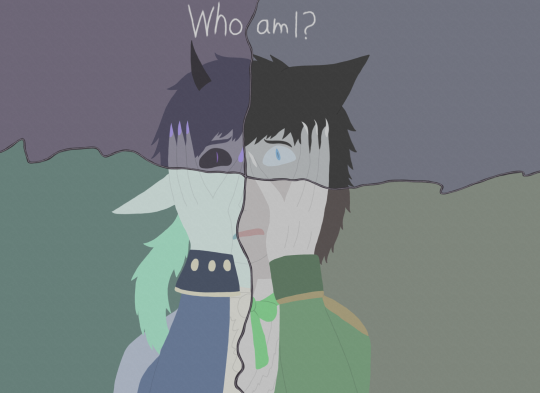
Who am I?
An idea that started with me thinking about a game idea made in the style of a visual novel in a fantasy setting centered around a kingdom's noble families. Political intrigue and mystery.
The player character would be created in the beginning, dollmaker-style since it would be in 2D. The race, appearance, outfit and noble family would be chosen in the CC, each race having a couple different options.
The game would start with you waking up in a bedroom. The game tells you that you are not the character you've just made but are instead a regular person who ended up in that body, whether that is meant to be you as in the player or the POV character themself is left unclear.
The intro is your attendant, who they are depends on the noble family that was chosen, coming to your room, finding out you have no memories, and explaining that you were in an accident, likely being the cause for the memory loss. You get to choose your character's first name, and personality traits they used to have before the incident.
The gameplay would then be you attempting to act in a way the chosen character would act to not raise suspicion while investigating the cause of the incident, finding it suspicious. The run would end with you figuring out who caused it and finding a way to make them face justice.
The player could then start a new playthrough with a new character. The incidents and events would be varied but the backstory of the character being someone who just woke up in this body remains consistent.
As you play more and more and discover new secrets, you start to find out about the POV character, that they are indeed meant to be their own character and not just a stand-in for the player. They begin to awaken vague memories about their life before, and eventually realize they remember each of the playthroughs of the game, being stuck in a type of timeloop, with the character they end up possessing being different each time.
Their memories of their original self being very vague and the many roles they take in the game leading to an identity crisis. The true endings relating to the player character themself would likely have multiple options, good, bad, neutral.
This whole idea going out of control inspired me to draw the poor Player Character, which is the name I will be referring to them as, if I ever return to this idea. It was a fun experiment.
#art#my art#oc#original character#player character#trying to condense this whole idea as much as i could but there's so much to explain#it started as just an idea for a game i thought could be realistically made and marketed#but then i thought what if i went full undertale on it#fun coming up with partial four designs the player character could have#just came up with them on the spot while drawing#though needed a little references for the little clothing that is visible#i think it turned out pretty nice
2 notes
·
View notes
Photo
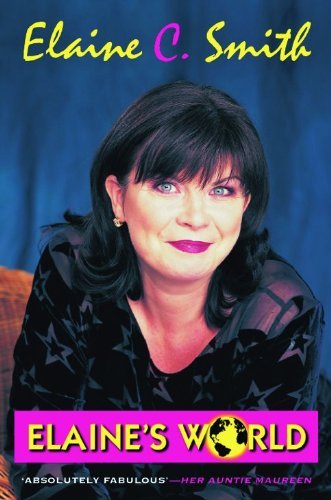


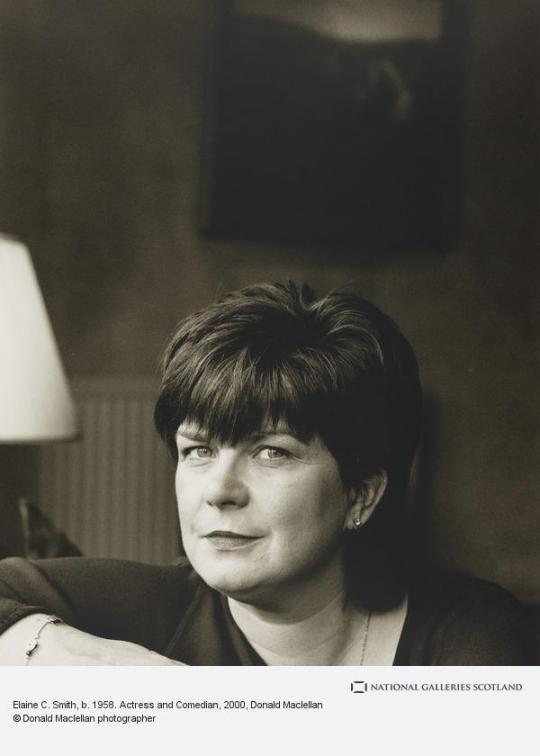

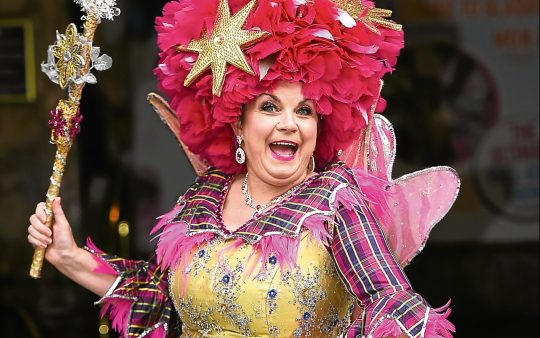
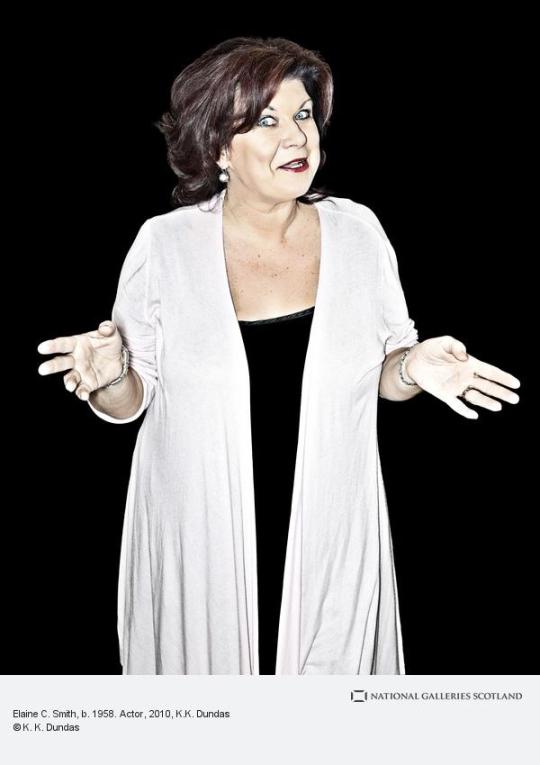

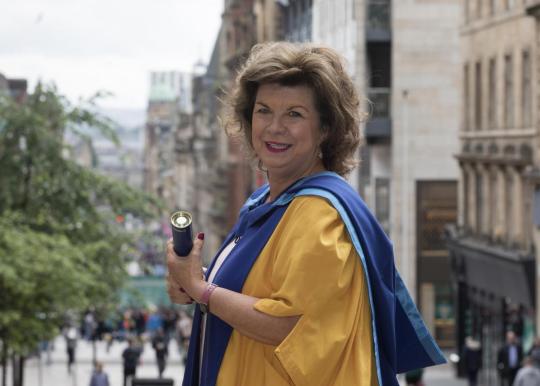
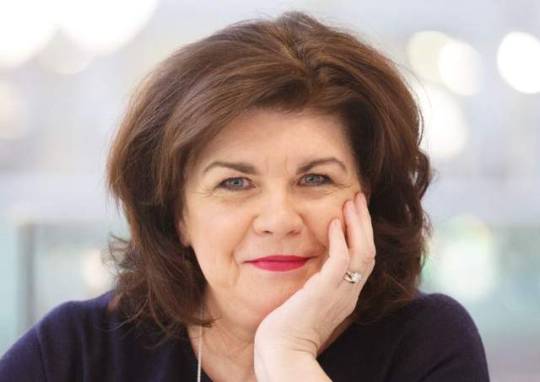
Happy Birthday Elaine Constance Smith was born on August 2nd 1958 in Baillieston.
At the age of 16 Elaine auditioned at the Royal Scottish Academy of Music and Drama and enrolled on a course to become a drama teacher. As a student Elaine discovered life beyond the Argyle street department stores her mother brought her to as a child. In the smoky pubs Elaine earned a crust tending bar and singing in club bands. She credits this experience for introducing her to the Glasgow patter and helping her acquire a thick skin.
Elaine moved to Edinburgh to complete her teacher training but it was her love of theatre that would call her back to her adopted home. Wild Cat Theatre Company was established by former members of 7:84 theatre group and it focused on political subjects with musical features. It was a perfect match for Elaine, famed for her vocal prowess and never one to shy away from a political statement or two.
When Tony Roper handed Elaine his script for a play that had been rejected elsewhere, Elaine took it to the Wild Cat Theatre Company. Tony’s play The Steamie, became a great success, and still well loved today. It also gave Elaine the chance to show off her acting chops as she was cast as Dolly alongside Dorothy Paul and Katy Murphy.
Since then, Elaine has found success in the comedy scene in seminal Scottish comedy shows such as Naked Video, City Lights and Rab C Nesbitt as well as a stage career that’s taken her around the world, the most famous of which is her portrayal of fellow Scot Susan Boyle in I Dreamed A Dream, a musical about the Bathgate singers life.
I really enjoyed Elaine in her own travel series, Burdz Eye View, where she visited Scotland’s holiday destinations including the East Neuk of Fife, Ayr, Nairn, Largs and Millport, Aviemore and the island of Arran, learning about the area’s history, local delicacies and way of life. More recently she has been starring in the sitcom Two Doors Down.
Last year she said in an interview she always sees herself playing the typical Glesga woman. She said
“I play these women because they ARE real. These are roles that resonate. I know women like them, and I want to tell their stories and get their voices out there .The best compliment I ever got was years ago, in a shop on Buchanan Street, when a woman recognised me and asked if I was ‘that lassie that played Mary Nesbitt. ’When I said yes, she grabbed me arm and said, hen, naebody does a Glasgow wummin like you.”
She also said she doesn’t see herself in a period drama like Outlander or Downton Abbey, stating “ I’d be the cook. Or the nurse. There was talk of an Outlander episode at one point, I think, but probably ‘hag-up-a-hillside’ or the like….”
Elaine is always a lady for supporting charities and social causes, she recently talked about the cost of living crisis, she says;
“The cost of living is going through the roof and thing are getting harder for people. We all need to create more of a stooshie about homelessness, and more needs to be done but this event gives a bit of light and hope and will raise money for desperately needed projects.”
She will be taking part in a charity cycle event, Social Bite’s Break the Cycle challenge to help raise £1m to fund vital projects. She has agreed to do the “Wee” one, a three mile segment with her Granddaughter. The event
The full event is a 60-mile cycle from the Sir Chris Hoy Velodrome in Glasgow to Edinburgh's Murrayfield and takes place on Sunday September 4th, full details on the link below.
Elaine now resides in the East End of Glasgow, where she still answers to an affectionate “ho! Mary doll!”
https://www.breakthecycle.co.uk/
6 notes
·
View notes
Text
Sunday Funnies, If You're Not Offended...
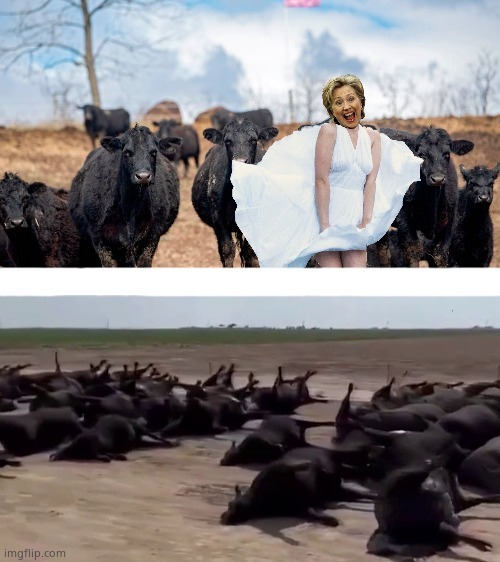
Welcome back to this week’s Sunday Funnies, where the phrase “Wild and Crazy” would be an understatement of what we witnessed last week.
As far as headline grabbers are concerned, a few examples include:
- Roe V Wade was overturned…translation: the states will now decide on its legality.
- O’Biden formally announced we’ll be having a 2nd Pandemic…and we need more money to fight it.
- Sinky Joe’s top economic adviser (Cecilia Rouse) said that: “More Government Spending Will Solve Inflation Crisis.”
At Financial$Matter, we’re not rocket scientists, but More/Emergency Additional/Wasted Government spending is what caused the inflation crisis.
And, by the way, prior to being O’Biden’s economic adviser, Cecilia Rouse’s claim to fame was from her co-authoring a groundbreaking and widely cited paper that examined “blind” auditions for symphony auditions, which kept genders of musicians hidden.
(A Scooby Doo “HUH?”)
As a result, Stinky Joe’s chief economist discovered that women were more likely to be hired for orchestras when they took part in the blind tryouts.
Sorry, folks…You just can’t make this stuff up.
In the meantime, we get to listen to the people who told us that inflation was not a threat now tell us that inflation can be solved with…wait for it…MORE INFLATION.
Presenting Cecilia Rouse as “Dorothy”
That’s the kind of White House Wisdom that would advise firemen to spray gasoline on a fire so that it consumes all the oxygen and extinguish itself.
(Spoiler alert…It Doesn’t Work as Expected)
The point being:
Never in history has fiat spending ever reduced inflationary pressures…it only makes them worse.
And that’s precisely why we publish the Sunday Funnies.
Idiots in DC – admitting that they are going to manufacture a new pandemic AND use inflation to battle inflation – are in panic mode.
So, we remind you that:
The Sunday Funnies are not just about our nations bizarre state of politics/finance/beliefs.
It’s about awareness of what’s happening in the world that we choose to poke fun at.
So, if our funnies/memes/cartoons/etc. provide you with a laugh or two – and/or open your eyes to some stark realities – then we consider that a victory.
And we believe that every now and then it’s healthy to be a bit silly…especially in the face of fear mongering, medical tyranny, and especially the threat of WWIII.
It’s all the more reason why we won’t apologize…especially if our Funnies just happen to hurt some Progressive/Socialist/Communist/Globalist’s feeeellwwings.
As usual, we remind you that Humor is Waaaayyyyy better than Hatred…which is contrary to what the world wants you to believe.
And we hope you see the Sunday Funnies as a refreshing oasis in the middle of a parched, dry, and increasingly dark world that we’re living in.
As always, we remind you: As difficult as things might appear, Evil Always Overplays its Hand…And Righteousness Prevails.
Thanks again for joining us on this crazy journey we’re on and remember America Was Built by the Brave, Not by the Fearful…
*************************************************
Democrat Alternatives for Abortions
*************************************
And After the 7th Booster…
************************************
Finally, A Victory for the 2nd Amendment
**************************************
Here’s Another Lesser-Known Historical Fact About Guns
**************************************
Three Times Nutritious? Hmmmmm!
****************************************
No, This is Not a Joke…
*****************************************
Gates and Schwab Coming Up With Alternatives
**************************************
What Klaus Schwab and Karl Marx Have in Common…
****************************************
Sure Glad All Those Health Conscience People Are Still Wearing Masks and Protecting Me
*************************************
Pfizer’s Way of Pandering to the Emoji Crowd
***********************************
O’Biden Said: “We’re Not in a Recession” but What the President Meant to Say…
***************************************
The Conclusion Many Americans Are Arriving at During ‘Pride Month’
**************************************
Aha! An Old Star Wars Scene that Finally Makes Sense
*********************************
Insurrection vs Media Coverage
***********************************
Liberal Logic…Okay for Me, But Not for Thee
***************************************
And More Liberal Hypocrisy
***********************************
Liberal Conclusion…
***********************************
When Someone (Especially a Politician) Tries to Tell You “Abortion is a Woman’s Right…”
****************************************
Oh, the Irony…Thanks Again, Ruth!
************************************
What’s Wrong Obi-Wan?
**************************************
The Proper Way to React to More Liberal “White Supremacy” Accusations
**************************************
Cows in India vs Cows in Kansas…
**********************************
What Really Happened in Kansas
**************************************
Something to Consider About ‘Drag Queen Story Time’
****************************************
Your Mom Would’ve Loved This…
************************************
And Just Like That…
***************************************
When the Truth Hits…
************************************
We’ve Gone From ‘Safe and Effective’ to ‘Sudden and Mysterious’
**************************************
The Science Behind ‘Safe and Effective’
**************************************
A Reality Check From Dad…Compliments of Mom
*************************************
What Most Americans Are Starting to Think...
************************************
How Celebrities, Politicians, and People of Influence Become Gun Grabbers…
*******************************************
***********************************************
That’s all for this week’s edition of the Sunday Funnies.
As always, we hope you enjoy our memes/cartoons/rants etc. and that they bring a smile to your face.
We definitely love to hear your comments so keep ‘em coming.
And although the world seems pretty dark these days, we encourage you to see why you have a lot to hope for in 2022 and beyond (HERE).
In the meantime, be sure to share these funnies with friends and family members.
Caution: They may get offended.
But remind them…It’s important to laugh together and laugh often.
And be sure to tell them…
We’re Not Just About Finance.
https://www.financialsmatter.com/category/in-plain-english/
See You Next Sunday…
Invest with confidence.
Sincerely,
James Vincent
World Leader in Simplifying Wall Street
Copyright © 2020 It's Not Just About Finance, LLC, All rights reserved.
You are receiving this email because you opted in via our website.
Read the full article
0 notes
Text
How to Write During a Pandemic
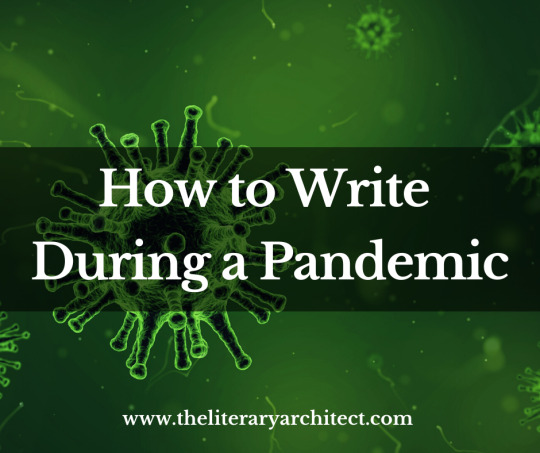
Hi all, Normally I keep this blog focused on writing advice and steer away from politics, but with the COVID-19 pandemic raging and all the accompanying uncertainty about our future post-climate change, I’ve been thinking a lot about what it means to be a writer on a rapidly changing planet. What’s our responsibility in a time like this? What kind of stories do we need right now? Is it even possible—or desirable—for our individual creativity flourish when we’re scared for our very lives? With that in mind, I wanted to offer my thoughts on how to renegotiate your relationship with your writing during this crisis, as well as some proposals for how to navigate the changes to come.
WHY IT’S HARD TO WRITE RIGHT NOW
Did you think being stuck at home, underemployed, and/or socially isolated would translate to more time spent on your writing… Only to discover, um, it didn’t? You’re not alone. While shutdowns, quarantine, and self isolation may be theoretically creating conditions that give you lots of time to write, many writers are more blocked than ever right now. Here’s why.
You’re Terrified. Even in the best of circumstances, writers under capitalism are regularly paralyzed by the fear that spending time on their writing is “unproductive” (read: non-income producing), frivolous, or even reckless. So it makes sense that it would be difficult to put time into a purely recreational creative activity given the heightened survival fears arising from these extreme circumstances.
Your Stories Suddenly Seem Irrelevant. Even if you can get yourself to sit down and write right now, crisis conditions can create an existential angst that causes you to question whether what you’re writing is still relevant, important, or helpful to others. Personally, I haven’t been able to write in days. Prior to this outbreak I was working on a darkly whimsical fairy tale about a monkey and a bear that escape from the circus. I thought it was relevant and deep—the story deals with themes of feminism, transformation, and survival under capitalism. But under the bright light of a viral pandemic, stories that once seemed deeply significant can suddenly feel like irrelevant fluff.
You Don’t Know How to Do Anything Different. Let’s face it—your pre-pandemic writing life was created to work well with your pre-pandemic life life. Now that your life has changed, you need to change your writing habits, too… But you don’t know how to do anything different. So you either freeze up and get nothing done, or try to ignore what’s happening and charge ahead like nothing has changed. Neither of these techniques work well, though. Now that your life is different, you need to do something different with your writing.
HOW TO KEEP WRITING DURING A PANDEMIC
Warning: I’m not going to urge you to stay the course and push ahead with your normal writing life against all odds. I don’t think that advice is realistic, and frankly it’s not responsible, either. Creative people are the vanguards of social change. If shit is going down, it’s our job to innovate and pivot, not to cling like barnacles to the status quo.
How to Write… When You’re Scared You’re Going to Die
First thing’s first: Lower your expectations. You might need to throw all your old plans (“I’m going to finish my novel next month!”) out the window. You might not be able to write as much, or as often, or about the same things you used to. That’s okay. Be gentle with yourself. See if you can write for ten minutes a day. Use an internet blocker to give yourself a break from the constant, anxiety-producing COVID-19 updates you’ve been reading since you woke up. Turn off your phone. If you can’t make any progress on your WIP, write something else.
There’s going to be a lot of pressure from the mainstream to keep things “business-as-usual” during this time. Fuck that. You’re not a robot. Write in a journal, or on social media, or don’t write at all, really, it’s fine. Lay down and cry. Let what’s happening touch you. As a creative person, we need you to absorb and process this crisis so you can write something that gives insight into our present and creates a vision for our future. If you need to take a break, change course, or give up for a while, do it.
What to Write… When You’re Drowning in Existential Angst
If your WIP suddenly feels irrelevant to your life and the world around you, write something else! Try a new story, new characters, new themes. If you usually write fiction, try nonfiction. If you’re anxious about our future, imagine a new one. If you’re angry about losing your job, write about that. And if all you can think about is the Coronavirus, for god’s sake write about the fucking Coronavirus. Remember: Our old stories got us here. If they feel stupid now there’s a good reason. Things are changing. In order to co-create a better future we’re going to need new stories, new art, new creative work that deals with our current reality and shows us how to make a better one. Let me repeat that:
We need new stories. The lone wolf hero who conquers all odds; the hetero-normative romance that results in an isolated nuclear family unit; the super special person who alienates themselves with a droney inner monologue of me me me wah wah wah but never has their come-to-jesus moment; the capitalist success stories and pessimistic dystopias… these old, status quo, individualist narratives will no longer serve us as our environment becomes increasingly inhospitable and industrial capitalism disintegrates.
The Coronavirus is not a fluke. The world is changing, fast, and we need writers like YOU to step up their game. The stories we tell each other matter. We need writing that teaches us how to take care of each other. How to trust each other, come together, and heal the wounds of fear and distrust that this brutal, competitive economic system has left behind. Writing is a powerful medium for change and we’re in a unique position right now (lots of time on our hands, very little left to lose) to take advantage of that.
It’s not going to be easy. Toeing the line is often highly rewarded. To make matters worse, in the short run, as people are quarantined in their homes with only online interactions and books to keep them company, there will be an increased demand for mindless, comforting, status quo media—movies, TV shows, fiction, etc.—that perpetuates old ways of thinking and does nothing to hearken the change we need right now.
Some people would argue that brainless entertainment and comforting fluff has its place, too, and overall I agree with that. It’s true we need distraction, entertainment, humor, and beauty in times like these. Every piece of creative work doesn’t have to scream out an Important Message. (It’s also true that there are already lots of awesome, relevant stories being told. It’s not all shit out there.)
But if you, like me, feel the tug to create work right now that feels more significant, while at the same time struggling with the pressure to conform to the status quo, I urge you to be courageous enough not to take the bait.
How to Do Something Different… When You Don’t Know How To Do Anything Different
In times of insecurity and flux, it’s common to default to familiar behaviors and narratives. How can we do something different when we’re so freaked out? How do we discover and create stories that feel connected to our new reality… when we don’t even know what that reality is yet? How do we establish new writing habits when things are changing on a daily basis?
Grieve your losses. We’re experiencing devastating personal, social, financial, and environmental losses on every scale right now. The ice is melting and the forests are burning, people are dying and animals are going extinct… but that novel you started last year that you were so excited about may also be dead. Take time to be sad about it, all of it. Ignoring this pain won’t make it go away. If you feel overwhelmed and don’t know what to do, cry. You might be surprised what possibilities open up once you let yourself feel it.
Start small. Begin with today, right now. Don’t make any big, longterm plans; they’ll probably change anyway. Figure out how to make 10 minutes today to write something that speaks to you. If you can’t conceive of a novel, draft a short story. If you can’t write a short story, write a poem or a social media post. Take a look at your WIP and see what needs to change to make it feel more valuable and interesting to you right now. Read something that inspires you.
Connect with others. Talk to other writers about how they’re handling this time, what they’re writing and thinking about. Stay close with your chosen family. We may have to physically isolate but now is not the time to be cut off from others.
Be kind to yourself. Part of what we need to say goodbye to right now is the constant inner criticism put in our heads by a global elite who have deeply invested in our insecurity, self-hatred, and fear in order to further their selfish profit-making agendas. Like, their time is DONE, and one way to give them the proverbial fuck-you is to be super duper sweet to yourself and those around you. Shit is really scary right now. You’re doing great.
Contact me. I’d love to know what’s going on for you during this pandemic and how I can support you and your writing. I might not be able to individually respond to every message, but the more I understand what’s going on for folks the better I can create stuff—blog posts, etc.—that helps. xo
5K notes
·
View notes
Photo
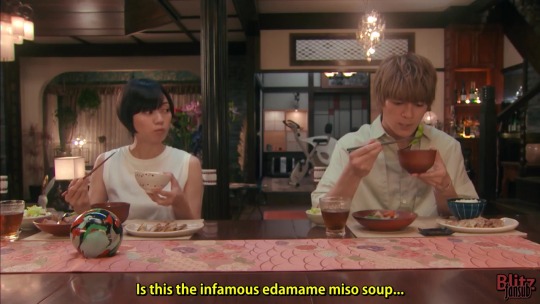



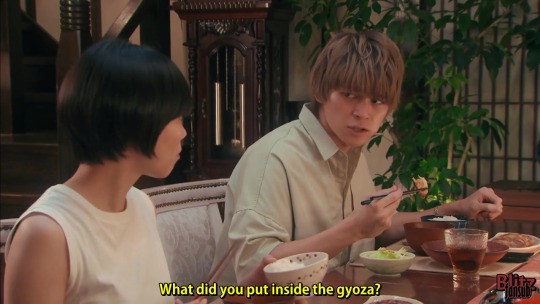


They are so freaking domestic and married and functional the whole time I can’t!!! They bicker and banter with ease of two people who feel secure and confident around each other and know each other’s boundaries and limits and don’t need to worry about offending the other person or the conversation turning antagonistic which allows them this sort of brutal honesty, at times, and frank criticism.
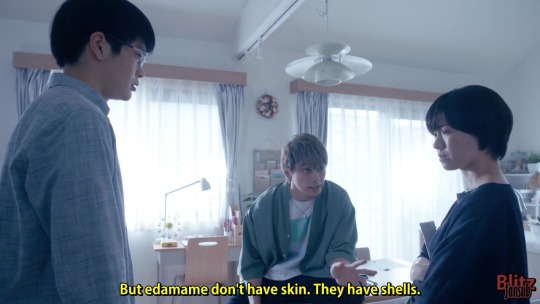
Issei gets the edamame shell husband treatment and he literally can’t believe it Hayame did that to him right in front of his salad when it already helped to ruin her previous relationship. It seems Hayame didn’t understand his lesson about the difference between the edamame shell and skin, well, she was in the middle of confronting her cheating ex so I suppose she was otherwise engaged.
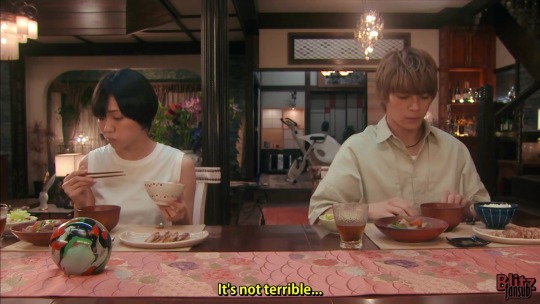
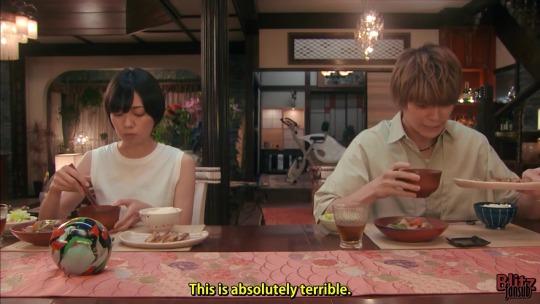
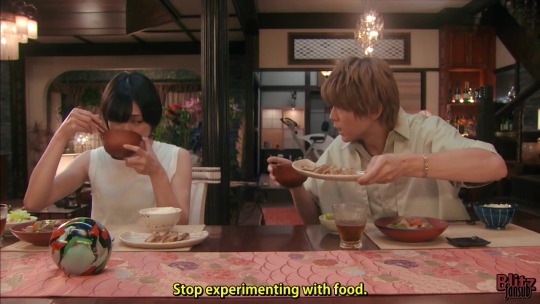
Though, poor Issei doesn’t know the depth of Hayame’s culinary disability until he discovers her special lemon and cereal gyoza! HA! I admire that he doubles down on his criticism and even if he tries to back pedal, he simply can’t make himself lie to her even to please her when it’s so awful.

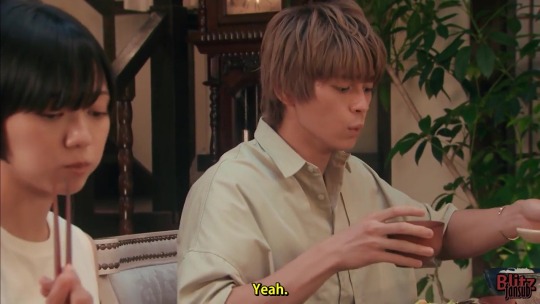
Unlike her ex-husband, he doesn’t put on a fake smile and swallows it so he wouldn’t hurt Hayame’s feelings but actually tells her it sucks bigly, showing that not only won’t he ever lie to her or keep secrets from her, he won’t feed her white lies to avoid conflict either. You almost never see portrayed in Asian dramas how these little mundane details can lead to a complete failure of a relationship once they pile up. Quite the opposite, they often depict swallowing food that makes you puke as something romantic and a proof of love without giving any thought to the fact whether the person can manage that for the rest of their life, considering it’s suggested most of the OTPs live happily ever after. The issue shows that Hayame and Issei are already more than one step further regarding the growth and functionality of their relationship than she ever came with Masahiro, illustrating their suitability. It’s not about a relationship being conflict-free, it’s about confronting the problems, argue about them even though it’s exhausting and uncomfortable and solve them through communication and misucommunication, not about hushing the issues up and staying silent about them in order to avoid arguments.
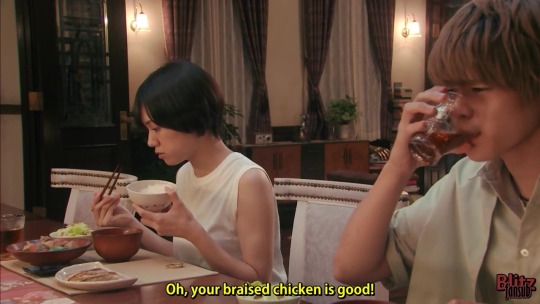

The drama might be called Promise Cinderella but it has been turning the Cinderella stereotypes on their head since episode 1. One of them is Hayame not fitting the bill of a girl who is amazing at cooking, sewing, reading, embroidering, polite conversation, dancing and generally being more princess-like than all the princesses and noblewomen, even though her mother died in her childhood and she couldn’t have taught her all those things, neither could her father, nor the mice or the other animals she spent all her whole time with. Let’s face it, Cinderella has always been the fairytale counterpart of Richardson’s Pamela and Hayame - divorced, almost thirty, penniless and jobless - is the modern real-life version of an orphaned abused virgin fallen on hard times.
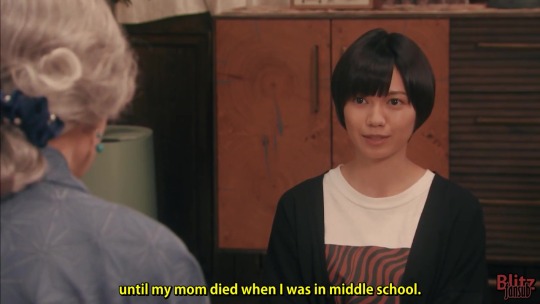

On the other hand, while Hayame might share Cinderella’s origin story of her mother dying at an early age, this sad event tragically affects her whole life in a much more realistic and darker way. Her father falls into a depression and becomes neglectful and she has to grow up overnight, having to learn everything by herself as she is left with no one to teach her, guide her and defend her so she ends up turning into a fiercely independent tomboy who is a self-taught cook and, as such, her cooking, well, sucks. She is literally the farthest thing from a Mary Sue ever.
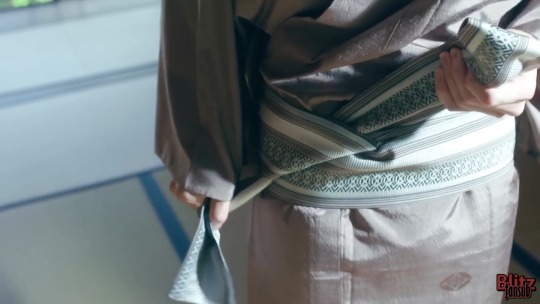
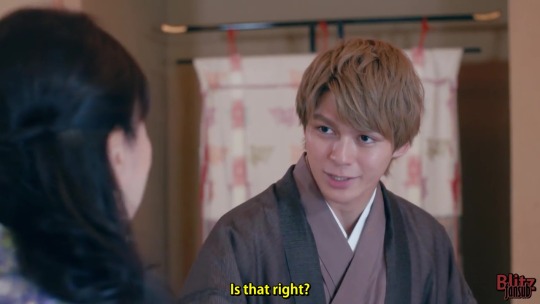
Then, Issei may be a modern version of a prince but while young, he has been taught since an early age and has a very unconventional unique upbringing in a modern world - he is the one who excels at cooking (because he had someone who actually taught him), can tie kimonos, knows the proper etiquette, can arrange flowers and knows their language and meaning.
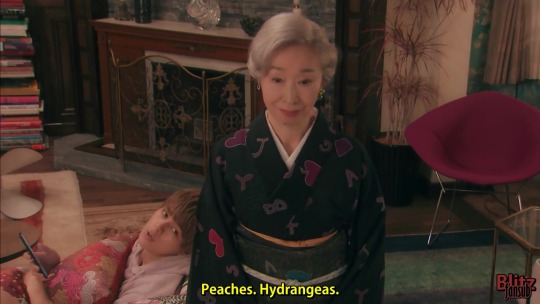
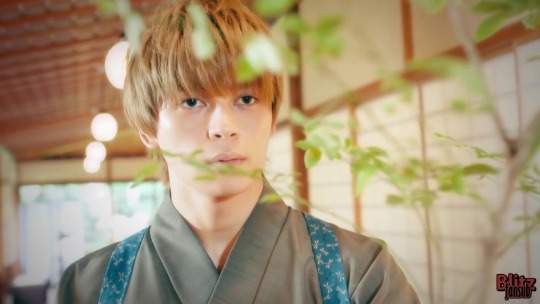
You would expect all those things from a woman, not a man; however, he is not only educated and good at them, he has a natural talent for them. In this way, the drama re-invents the Cinderella story, gives it a new original meaning and a breath of fresh air.
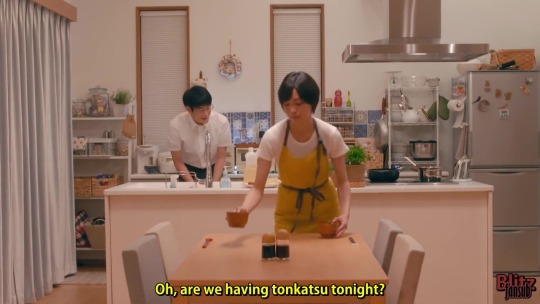

Thus, you can see all these details in which Hayame’s relationship with Issei differs from her marriage - they are left to live together alone in what is basically a simulated marriage, but she doesn’t end up in the traditional role of a woman and housewife whose purpose is to provide dinner/food for her husband who comes back from work. She used to work back then, too, even if only part time. Now, it’s her who works full-time while Issei works part-time but despite it they share the cooking and he, fittingly, ends up being the better cook, completely changing up the dynamic of the traditional roles both in the original fairytale and male/female relationships in general.
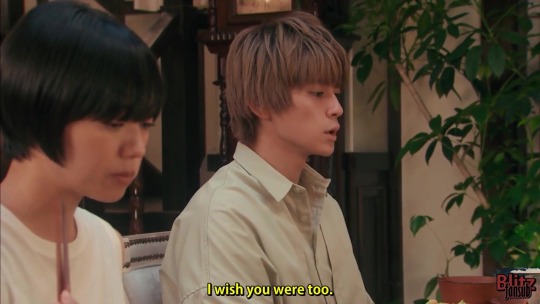
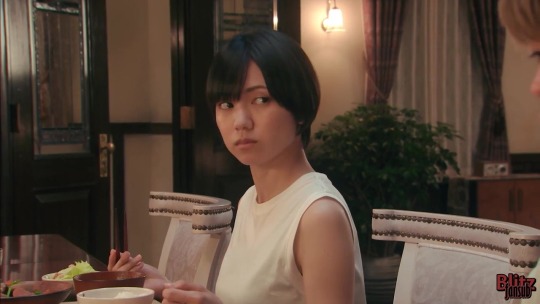

Except for a brief denial stage caused by his confused feelings, Issei has always been honest with Hayame, sometimes brutally so, be it regarding the major issues or mundane everyday things like her cooking skills.
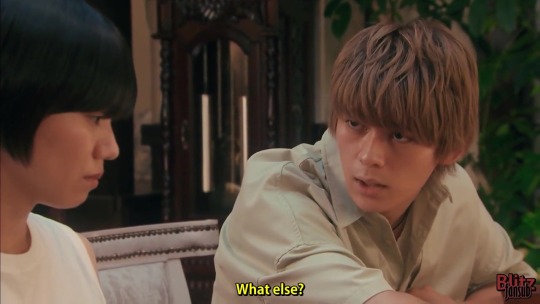
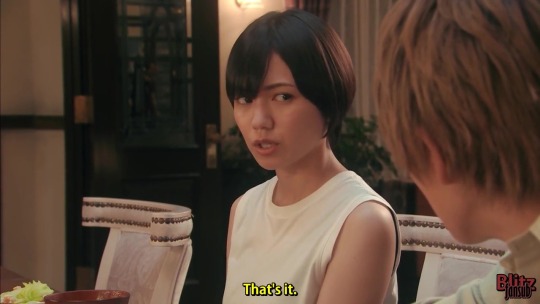
He treats her the way she wants her to treat him, and, as a result, he rightfully expects the same honesty and consideration in return from her. He doesn’t want any lies or secrets between them, he wants a conversation not a deafening silence, regardless whether they are lovers or friends.
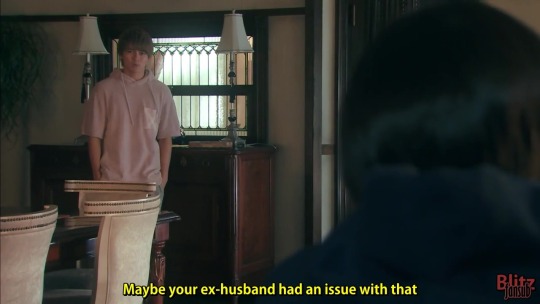

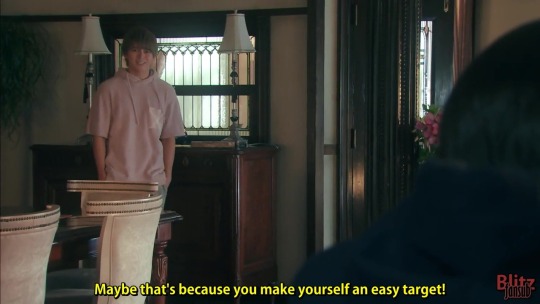
He wants honesty and equality and instead, Hayame is trying to dismiss him as a child again in an attempt to avoid the problem because it’s uncomfortable and she doesn’t want to have a messy argument or worry him. She should have known by now that that’s exactly the attitude which led to the failure of her marriage. Not that they are an excuse or justification for cheating, but Masahiro raised some good points about the things he disliked about her and it’s time Hayame learns from her past mistakes.

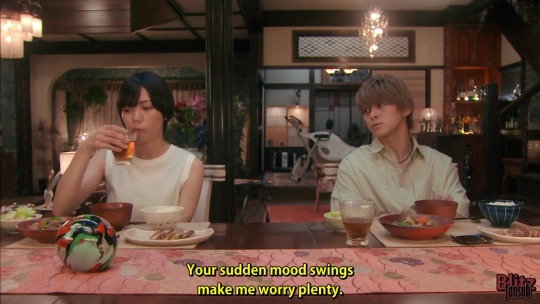
Marriage/romantic relationship is not a one-person show, the point of it being you are not alone to deal with your problems, some burdens should be shared and if not, the other person feels left out because their partner keeps secrets from them which then leaves many opportunities for misunderstandings and creates a rift that keeps growing between the couple. Hayame’s greatest strengths - her self-reliance and independence - which allowed her to survive on her own so far become her greatest weaknesses and drag her down now.

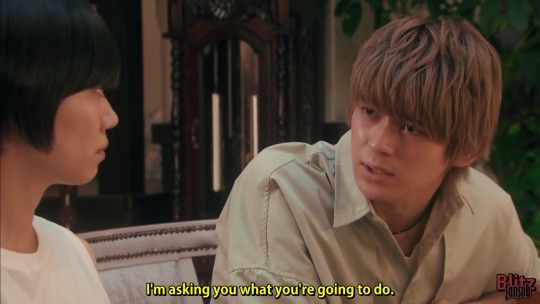
Issei immediately realizes Hayame has been putting a mask around him, trying to make herself look cheerful and happy, he can see through it right away as she can never fool him because he knows her so well and, frankly, she couldn’t pretend even if her life depended on it just like him. She fails to notice that this sort of consideration and selflessness are a double-edged sword.
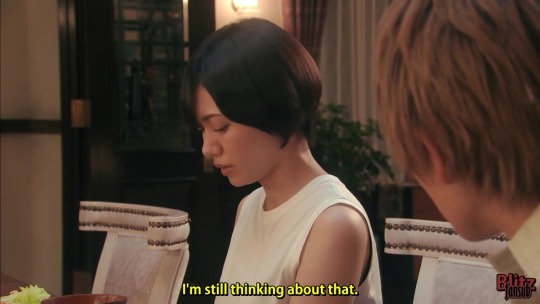
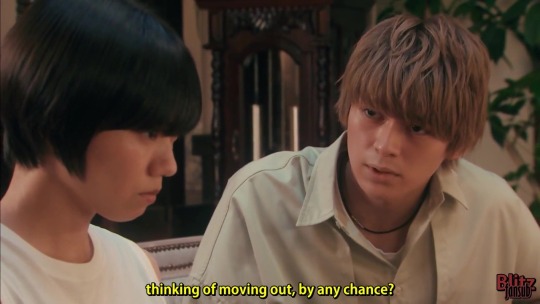
It’s both apt and ironic she tries to dismiss him as a child because her stubborness, discomfort and avoidance maker HER appear like a child and Issei the one 10 years older with his patience, calm and and persistence on discussing and solving the whole issue. This time it’s him who calls her out on her bullshit and childishness.
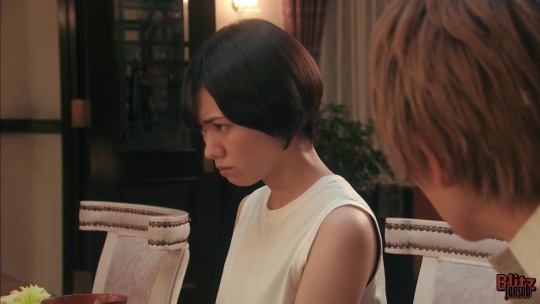

Issei notices everything about Hayame, including her mood swings which also refer to the mixed signals she’s been sending him, and how could he not when he always watches her so searchingly as if he were trying to look inside her soul, trying to spot every quiver of her lashes and nervous press of her lips.
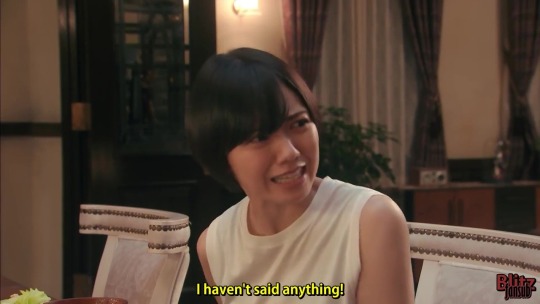
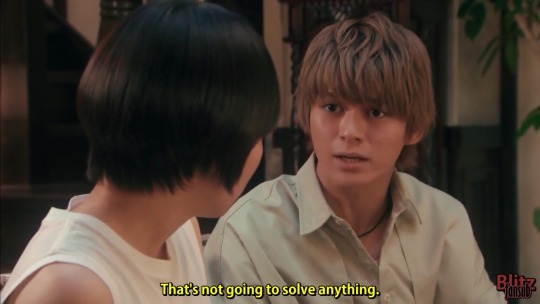
Thus, he can sense and predict what she plans to do because he can read her like an open book after watching her so closely for so long but also because he’s been there where Hayame is right now - he had been running away for the past 10 years before he met her and she saved him by making him realize he had been fucking up his life that way, therfore he gets angry seeing her repeating his mistakes.

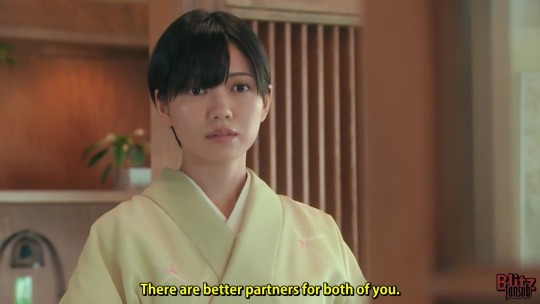
Moreover, he is scared shitless he may one day wake up and end up like Seigo, abandoned by her, not even left with a direction where to look at her, because she thinks she is not good enough and fears she might drag him down and mess up his life.

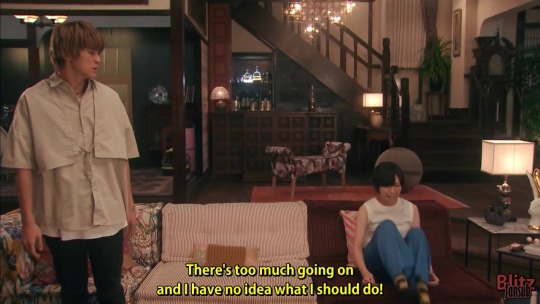
Despite it all, Issei doesn’t think about himself first, he thinks about Hayame and what it is she truly wants. She feels so lost and conflicted, fretting and completely panicking and he pretty much tells her ‘fuck the world and other people! You are the only person who matters! Think about yourself first and do what you truly wish to do even if it makes them hate you.’ And from the hopeful way she looks at him, it’s exactly what she needs to hear and wants to truly do but lacks the courage to go through with it just yet.
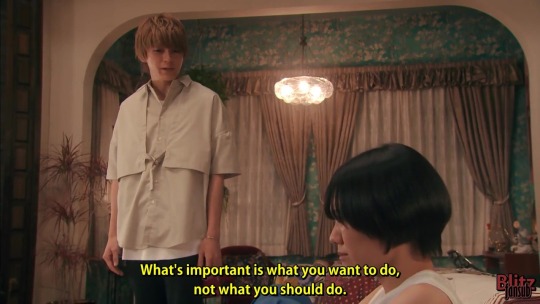

Finally, THIS SHOT on the sofa! It pretty much says ‘married, in the middle of marital crisis and before a huge life-changing conversation’!

#promise cinderella#maeda gordon#nikaido fumi#gordon maeda#jdrama#fumi nikaido#analysis#sorry for the length#but there is#so much to#unpack here
35 notes
·
View notes
Text
Read a dope article and when I came back I couldn't find the post anymore so...
Federici is a longtime advocate of the idea that domestic work is unwaged labor and was a founder of the Wages for Housework movement in the early 1970s. It is a form of gendered economic oppression, she argues, and an exploitation upon which all of capitalism rests.
As a scholar and activist, Federici is one of a cohort of thinkers who have, for decades, critiqued the way capitalist societies fail to acknowledge or support what she calls “reproductive labor.” She uses this term not simply to refer to having children and raising them; it indicates all the work we do that is sustaining — keeping ourselves and others around us well, fed, safe, clean, cared for, thriving. It’s weeding your garden or making breakfast or helping your elderly grandmother bathe — work that you have to do over and over again, work that seems to erase itself. It is essential work that our economy tends not to acknowledge or compensate. This disregard for reproductive labor, Federici writes, is unjust and unsustainable.
These ideas weren’t exactly obscure before the pandemic. But mainstream feminism — not to mention mainstream economics or politics — has mostly ignored domestic labor. Instead, it has measured women’s empowerment by their presence and influence in the workplace, which is attained by outsourcing housework and child care to less economically advantaged women for a low wage. Even so, women remain mired in housework. It’s common now to hear the term “the second shift” (coined in 1989 by the sociologist Arlie Hochschild), which describes how the work of maintaining a home and caring for children still falls disproportionately to women, even if they have full-time jobs and pay for help. What’s more, people who are paid to do domestic labor or care work (like elder care or house cleaning) are, as a group, badly compensated and denied workplace protections or benefits. These jobs are held mostly by women of color and immigrants. The arrangement is hardly a success for women at large.
Public-policy experts and economists have pointed out in the last several years, the folly of excluding domestic work from economic measures like G.D.P., given the data showing that unpaid women’s work constitutes a huge slice of economic activity in every country. A year ago, Oxfam circulated research indicating that if American women made minimum wage for the work they did around the house and caring for relatives, they’d have earned $1.5 trillion in 2019. Globally, the value of that unpaid labor would have been almost $11 trillion. In a 2019 speech, Marilyn Waring, a public-policy scholar and longtime advocate of revising economic measures of “productivity,” noted the absurdity of defining activities like caring for elderly relatives or newborns, shopping and cooking, as having no value, or as leisure. “You cannot make good policy if the single largest sector of your nation’s economy is not visible,” she said. “You can’t presume to know where the needs are.”
This isn’t the only part of the present economic system that seems awry. The wealth gap is as wide as it has been in hundred years, with more workers than ever in unstable or low-wage employment, or subject to the whims of the “gig economy.” As the exhaustion and insecurity caused by these economic conditions have deepened, more and more people are coming around to the idea that the morass of America’s social ills might be traceable to an incorrect relationship to work and the question of whose work is valuable.
‘You cannot make good policy if the single largest sector of your nation’s economy is not visible.’
When the lockdowns started, this growing malaise exploded into a crisis. First came the discussion of “essential workers,” a category that, it was quickly noted, frequently corresponded with the most critically underpaid workers. Then came the acute realization among the middle and upper classes that their lives had run smoothly because they’d been able to subcontract domestic labor — and, critically, elder care and child care — to other people. After nearly a year of school closures, working parents are keenly aware of the amount of child care they rely on underpaid teachers to provide for eight hours a day. Without even the ad hoc systems for managing the constant work of child care (day care; grandparents; after-school programs; summer camp; babysitters), American parents have discovered that the requirements of caring for a family match or even exceed the requirements of the full-time jobs needed to support that family.
None of this is news to, say, the single parents who were already working multiple jobs at minimum wage and unable to afford rent and food, much less babysitters — but the reversion of the professional classes to a situation that feels to them similarly untenable has inspired a radical mood. Increasingly, even those relatively unscathed by the pandemic are voicing anticapitalist sentiment, critiquing an economy that underpays or ignores domestic labor. A group of wealthy female actors and executives (including Julianne Moore, Charlize Theron and the leaders of Birchbox, ClassPass and Rent the Runway) are calling for a “Marshall Plan for Moms,” including monthly government payments to mothers. “You know this well: Moms are the bedrock of society,” they write, “and we’re tired of working for free.” Shonda Rhimes wrote on Twitter last March: “Been home-schooling a 6-year-old and 8-year-old for one hour and 11 minutes. Teachers deserve to make a billion dollars a year. Or a week.”
147 notes
·
View notes
Note
Hello!
Can you recommend me some very underatted gay movies? (I prefer comdey or happy ones if it's possible)
I recently came to realize i am a 23 man who happens to be gay. I don't know what took me so long.
Hello! I am sorry for the time it took me to answer you, but your ask has been playing constantly in my head now for weeks and I had to go down nostalgia lane film-wise...!
I'm also sorry for how long this answer is, I got carried away!!!
So first of all, I am damn proud if you. I know it sounds like empty words but whether you're 13, 23, or 45, being able to say you have found your inner truth is always something to be proud of! And what took you so long? It didn't. We are living in times where people want you to believe you are meant to have your sexuality and/or gender figured out by 18 when in reality, I know more people doing their coming out in their 20's/30's. Because when it comes to being gay, lesbian, bi, trans and queer : this last decade has seen some major changes. But it's ok for people born late 80's and 90's to come out "just" now. We grew up in a time where homosexuality was still taboo in most places. And when I say taboo, I mean that "homosexual" was barely pronounced, sometimes only whispered. A time where "gay panic" was a legitimate defense in court. (Talking from a Western European point of view here again. Many places in the world, including the USA still consider the murder of an homosexual or transgender victim as a legitimate act. And these last years has proven that there was not only the "gay/trans panic" crippling our streets, but also a "black panic" and more recently, an "Asian panic". Short aparte here : "gay panic" doesnt mean "omg, that person is making me question my identity!?" nor is it a term used when thirsty over an actor/actress when openly gay such as "[actor name] oh wow...*gay panic intensifies*... this term is a serious concept a murderer can use in court as a defense when taking the life of someone from the community. This is the law enabling hate crimes.)
To any younger people reading this right now : gay marriage has been legal in France since 2013, in the UK since 2014 and, allegedly, in the US since 2015. This is recent history. People who are mid-20's are historically closer to the HIV/AIDs crisis than of the legalisation of same-sex marriage.
As such, we are made to believe than coming out in our twenties or thirties is doing a late coming out. No, it's not. We are a generation who suffered through systemic homophobia in our formative teenage years. When we were trying to figure who we were, people were marching in the streets calling us names, and trying to defend the idea we did not deserve basic humans rights. (As a side note, I am not implying that such issues are not currently happening. This is mostly western European centred again as I am, well, European. This is also targeted towards sexuality orientations, excluding any gender talks as this is still currently a very real societal issue for which the fight has only just begun. Double side note : I'm not yet fully caffeinated. But hopefully you get the general idea despite my flagrant lack of eloquence on this fine morning.)
Alright, let's move on to films then!
I searched for a long time for happy / comedic films but then I realised I was definitly not the right person to answer that. On a general basis, I enjoy dramas. That's my thing.
So instead, I thought I would list you the first LGBTQ+ Films I ever watched, hoping they'll find you well.
-Stonewall (1995). Not my favourite film, but as a kid, it was great first jump into lgbtq+ history. Sad note : The director of this film died of AIDS shortly after.
-Another country (1984) Based in the 1930's in a public school. Starring Rupert Everett (who just a few years ago came to direct "The Happy Prince", a great take on Oscar Wilde and Alfred Douglas, casting himself as Wilde, and Colin Morgan as Bosie...fantastic film, highly recommand), and starring Colin Firth. Teenagers discovering themselves, from homosexuality to politics. (The parralele made is quite interesting as both young men are misfits...one for being gay, one for being Marxist.) Great watch, but a heavy one.
-Maurice. (1987) God, I love this film. It explores not only coming to term with your sexuality but also what it means to be homosexual for the people around you and the impact it can have on your life, depending on your social background. Starring James Wilby, Hugh Grant and Rupert Graves, this is an other drama which leaves you feeling almost raw. I always had an affinity for British film because of how...real they feel. Best example would probably be Danny Boyle himself. You know what I mean... you grow attached and you feel for these characters. And Maurice does just that. Memorable quote : I am an unspeakable of the Oscar Wilde sort. (And you might think : "Oscar Wilde? Again??" And oh boy, yes. Oscar Wilde again. Yes, he is one of the most well known author, mostly because of The Picture of Dorian Gray, but he is also a major part of Queer history. After all, "queer" has been used as a derogatory term for homosexuals for the time...directed at Wilde during his trial for posing as a somdomite. (No typo there.) Being an unspeakable of the Oscar Wilde sort is an other one of the euphemism like "being a friend of Dorothy") And talking about Wilde...
-Wilde (1997). Biopic, Stephen Fry as Oscar, Jude law as Oscar's lover : Bosie. Incredible. Superb film. I can not find words.
-An Englishman in New-York (not the Sting song. Actually yes, kinda the Sting song. Because both the film and the song are about the same man : Quentin Crisp). Biopic. An artist, writer, actor, Quentin Crisp has always bothered. Painting his nails, wearing make up, criticising the royal family. He was a character. John hurt is magnificent as Crisp, who he had already played in 1975 in The Naked Civil Servant, an other great watch.
- A Single Man (2009). With Nicholas Hoult and Colin Firth. This film was a slap in my face. And it has, in my opinion, one of the greatest speech of all time, during a scene in the classroom :
"[...]Let's leave the Jews out of this just for a moment. Let's think of another minority. One that... One that can go unnoticed if it needs to. There are all sorts of minorities, blondes for example... Or people with freckles. But a minority is only thought of as one when it constitutes some kind of threat to the majority. A real threat or an imagined one. And therein lies the fear. If the minority is somehow invisible, then the fear is much greater. That fear is why the minority is persecuted. So, you see there always is a cause. The cause is fear. Minorities are just people. People like us."
-Pride (2014). [TRAILER] Bloody hell, that film. When we talk about lgbtq+ history, we often thing about the pink triangle and the holocaust, Reagan, Stonewall, AIDS and... fucking Maggie. Margaret Thatcher, the Iron Lady. Again, funny how the past is closer than we think, as I still have friends of mine talking to me about that period in British history that they lived through. The minors strike. The poverty, the crisis of the working class and the HIV crisis. But if you are looking for a film full of hope, from tears to laughter, this is the one. Bread and Roses. Bread, and Roses. And a message, which I believe is the essence of our community to this day : solidarity forever. After all...there is power in a union.
If anybody has other films to add, you are more than welcome to do so.
Love you all xx

#film rec#movie rec#gay film rec#gay movie rec#anon ask#lgbtq+ rights#lgbtq+ history#queer history#pride#a single man#stonewall#an other country#maurice#an english man in new york#oscar wilde#solidarity forever#important#coming out#margaret thatcher#uk#british films#queer movies
28 notes
·
View notes
Note
So there's a blanddcheadcanons post that says that "Kara is the mortal avatar of Rao" and I really don't like it, especially in the context of SG 3x04 (The Faithful). At best, as was pointed out to me by a friend with whom I discussed this post, the House of El is likely blessed and somewhat sponsored by Rao, which probably doesn't do much but produce Krypton's greatest heroes, given what the word "El" **means** in Kryptonian. I'm interested in your thoughts on this (pls post your answer).
I reject the headcannon solely because if it were true it would mean Coville was right and I fucking hate that bitch.
In all seriousness, though, this is an idea I've seen a lot and I'm not a huge fan of. I don't know much about Raoism beyond what appears in the show and that which can be inferred off of the show. One thing I would point out though is that El in Kryptonian (while obviously being intended to mean God by the original comic writers) can mean Sun or Stars, and since the Kryptonians in the show are, as far as I can tell, monotheistic, and worshipped only one particular star, the El family is not necessarily named God. It would, however, signify their enormous prestige on Krypton and contribute to the famous El pride (or rather, arrogance). I’m not sure it would necessarily have to mean anything more than that-- that the Els are a respected house who have produced a variety of successful politicians, civil servants, and scientists. And (this time reaching a little bit) that they are perhaps so old and respected that their house name was once a title.
There is a certain allure to the theory, for sure. Kara is a paragon character. She always, always does what she thinks is right, regardless of the cost, personal or global, and regardless of what other people might think of it. She has a very direct moral compass, and there are only a handful of times when she doesn’t follow it, all of which involve saving Lena. Ship who you want, but it is notable that Kara routinely prioritzes Lena’s life over that of others given the rarity of that happening otherwise. She never even considered breaking Rick Thompson’s father out of prison when he kidnapped Alex, and all he’d committed was bank robbery. Kara has lines she does not cross (though murder is clearly not one of them). She is a character that has seen some of the worst that sentient life is capable of, has seen more death and suffering than most people could imagine, and she came out of it with an all-encompassing desire to protect others. She lives to give people hope. Plus, the humor of having Kara-- the one person most offended by the idea of being an Avatar of Rao-- turn out to be an Avatar of Rao is great.
But, I would also say that having Kara want to do good because she is the avatar of a benevolent god is reductive and not particularly true to her character. It is true that helping and protecting people is a large part of the core of who Kara is. But there is a difference between altruism and the self-destructive, bordering of suicidal desperation to save absolutely everyone that Kara practices. And to anyone who doubts the suicidal bit, I direct you to the season 1 finale where Kara literally goes on a goodbye tour because she thinks if she goes out to fight Non she’ll die. She still goes because she has hope, but that hope is that she can at least save Earth with her life. She doesn’t fight because she is certain in the ultimate victory of good and justice. She does it because she more afraid to lose another family than she is to die. Kara doesn’t become Supergirl and risk her own life because she believes in good, she does it because she can’t stand to listen to people suffer-- because she has suffered. To use Alex’s words in 1x13 “You fight everyday to keep people from struggling like you have.” Notably also in 1x13, Kara wakes up from the Black Mercy and her first words are “Who did this to me?” and then she goes after Non in what could arguably be described as a homicidal rage-- a rage that is fueled entirely for personal reasons, not the greater good of Earth (though that comes as an added benefit), which is.... not very befitting the avatar of a benevolent god.
A major part of season 1 is Kara dealing with grief and rage. She nearly breaks a guy's arm in episode 6 because he screamed at her for damaging his car, to hell with the children he'd almost hit with it. In season 3's Midvale flashbacks we see her first put both hands through a lunch table, then attack Jake when she suspects him for Kenny's death. She gets better at controlling it as the seasons progress, but during Crisis she very nearly melts Lex. Also not particularly godly of her.
Then there is the fact that so much of who Kara is is shaped by fear: fear of the government, fear of humanity, fear of abandonment, and fear of herself. In her civilian life, Kara is, for the most part, unnoticeable. She's polite, soft-spoken, doesn't wear a lot of bold colors or styles, and is often a pushover. As shown by her encounter with Red Kryptonite, Kara would not dress or speak the same way to people without the pressure of hiding her identity (though much of her dialogue is purely the loss of her "don't be an asshole" filter, some of it is stuff she had every right to say before and just didn't). I have always found that episode to be very interesting purely for the fact that Kara doesn't actually seem to be seeking harm on others so much as seeking their attention. Her argument with Alex is almost entirely about how much she hates having to hide and pretend to be less than she is. Kara drops Cat off the balcony and then catches her. She attacks the police when they point weapons at her but doesn't kill or even hurt them that badly, instead of destroying the car they're using as shelter. Red-K removed her inhibitions, made her angrier, yes, but if her goal was to actually hurt people, she could have done so-- would have done so, and with great ease. She goes to a public bar and uses super strength to smash bottles by flicking peanuts. Why do that at a crowded bar? Why not just flick potato chips at the windows in her own apartment?
This is Kara at her absolute worst-- but does she seek out the DEO agents who shot her out of the sky? Does she go after Maxwell Lord or Non? No. She tries to make people pay attention to her. Her most shameful and hideous desire is for people to give her respect. (Admittedly, respect gained through fear, but still.). Kara's a nice person-- much, much nicer than average-- but a lot of that "nice" is just her avoiding conflict to avoid attention.
Kara is a good person. Kara inspires people. But that is because Kara gets up every day and chooses to be good and to inspire. It's one of the reasons I enjoy Non as a villain so much-- he and Astra are Kara's narrative foils. They also remember Krypton and grieve its loss. They also were trapped in the Phantom Zone. But where Kara had the Danvers to convince her that some good people existed and would risk themselves just to help others, Non and Astra had Alura sentencing them to eternal suffering rather than helping them save their planet (through the means they thought necessary) and then landed on Earth and found it headed on the same path as the planet they'd just lost. Kara had people to help her grieve. Non and Astra were surrounded by misery. They lost hope. Kara discovered it.
Kara is the Paragon of Hope because she has been hopeless. Because she has suffered so much, seen so much, and because she chooses to believe in a better future. She didn't have hope her first time in the Phantom Zone. She didn't even have hope for a while on earth. From what we can gather, Kara's choice to start actually believing in the future was a gradual shift that occurred sometime after Kenny's death and has lasted her ever since. For Kara, hope is learned. She chose to hope and she won't let it go, and to assign that incredible victory off to her being a God is an insult to her growth and to her character.
Now I personally thought “The Faithful” handled this concept very well. 3x04 is one of my favorite episodes of television in general, let alone in Supergirl. Season 3 is my second favorite season, and that says a lot for its good episodes when the bad of season 3 is so, so very bad (To say nothing of the episode to episode production value, we have the waste of Argo, Mon El’s return as obviously he’s grown he has a beard Mon El, and whatever the hell was going on with Kryptonian genetic engineering eclipse causing witches). To this day I don’t know why Kara had magic dreams. The show did nothing to explain it and I can’t imagine up a reason.
But “The Faithful” works because it highlights the whole paragon part of who Kara is. When you realize that every person in the room of Coville’s cult is a person she has personally saved-- that hits hard. Especially since only a fraction of the people she’s saved would ever set foot inside that building with the totally not-creepy, entirely wholesome way they deliver the invitations. (“Your daughter is special. She has been chosen. As have you.”) It works because it focuses on how the average human must view Kara, the ones who don’t see her argue with her sister over potstickers and crush her phone when she gets mad. It works because of how desperately hard Kara tries to be a human. It works because the writers know that we, the audience, do not see Kara as anything but a regular person with irregular abilities: a kind and remarkably devoted person, but not a god.
#I didnt discuss it above. but Kara gets REALLY mad about Covilles whole deal#I really love watching her reaction to kryptonian artifacts#girl goes suspicion first and anger second#and it highlights her humanity#even as it puts her on a pedastal#Kara saved all these people but she will still tear her holy book from your hands#and scream at you for daring to quote it#Supergirl 3x04#Supergirl 1x13#Supergirl 1x20#Supergirl#Kara Danvers#Supergirl meta#Kara Zor el#Raoism
16 notes
·
View notes
Text
I watched all of Killjoys with @mimeparadox!
- This being my third time through seasons 1 and 2, I probably enjoyed Dutch-D'avin the most I ever have, really seeing what the show was trying to convey with that relationship. That said, I still do not like the show's attempt to make them do insipid romantic fluff at the end of S4 and S5. They still work best as comrades.
- There is no best season of the show. S2=S3=S4 > S1 > S5. S2 is the best the show does with its class conflicts, having discarded the Pretty People Dramz of S1. S3 is the most coherent in its character themes, everything lensed through the tragedy of Dutch and Aneela. S4 does the most payoff for all of the relationships in the show.
- Oh, poor S5. This is the first time I've rewatched it, and I did still have a good time. Basically, S5's weaknesses all have to do with it being the final season. The Prison arc is actually quite fun...so long as it has nothing to do with The Lady. In general, the show is not as good as when it remembers that they have to tie things up and finish off this alien invasion storyline. They're great at the serialized character/relationship elements, less good at the serialized plot parts.
- The Prison arc shows that Lovretta could definitely be the showrunner for a classic spy competence porn show a la Nikita.
- The Lady is still great as Khlyen's third failure as The Worst Dad to Murderous Teenage Daughter. The reason I love her as a garbage fave, whereas Angel's Connor is a (hah) narrative killjoy, is that The Lady's behavior does not cause the other characters to betray themselves. For the most part, The Lady incites the others to do more competence porn, whereas Connor just incited tedious interpersonal Dramz (with maybe the exception of the return of murderous Fred).
- mimeparadox and I have discovered across watching multiple shows that the best character archetype is an ultra-competent slightly neurotic uptight character getting blindsided by their Feelings (bonus points if said Feelings are romantic). We have named this archetype Paris, named after Paris Gellar from Gilmore Girls. The Paris is such a powerful type, especially as a Big Bad, that Killjoys does it twice in a row, with Aneela and The Lady.
- Intriguingly, I finally saw what the show was trying to do with a series-long arc for Johnny.
- In S1, the seeds are planted for the fact that Johnny wants to do more than survive, he wants to have a stronger emotional anchor than just being with Dutch (he is Dutch's gravity, but the reverse isn't true). In S1, this manifests in his being intrigued by Scarback spirituality. In S2, this manifests in his becoming more invested in Westerley's class politics (with Pawter) than Dutch's more self-centered investigation of the Hullen. And in S5, he decides that being a rootless Killjoy isn't viable in the long term. He doesn't want the warrant to be all.
- Of course, the execution gets muddled, because Johnny on the mission Fun Train is entirely too compelling, as are his dynamics with everyone else on the team. Note how S3 and S4 aren't mentioned above, as in those seasons, with the exception of the Hackmod Arc, Johnny is focused on Dutch's war with Aneela and The Lady. The fact that there's no issue with the character dropping his series arc for two seasons shows that this arc isn't really critical to his character at all.
- And that's exactly the conclusion that the show itself comes to, with the Oneyer absence tossed aside in the end for a "one for the road" of indefinite length.
- Part of this, though, is not a betrayal of the series arc because at the end of the series, Johnny is not still simply a Killjoy, for whom the warrant is all. He's a new Level Six, and so has a purpose to genuinely care about (which also happens to enable his pursuing the other missions he wants on the side, like The Factory).
- I got a better sense for Dutch's series long arc, too, which was really interesting, because she is never actually a hero in her own motivation. She is basically selfishly motivated from beginning to end, but just slightly growing the circle of who she considers under her protection. Dutch's driving motivation at the beginning of the series is to flee anything that might impinge on her personal freedom. Then, she decides to fight back instead of flee, which means that she seeks having just enough power to do so. S4 is about how she balks at the responsibility that comes with it, which we discover is rooted in how she's having an identity crisis about her biological family. In S5, she comes to a more stable place in her identity and how much responsibility she's willing to take on to defend her home, but grapples with some of the remaining things impinging on her emotional freedom (the loss of the certainty of Johnny, and then cycle of Khlyen's abuse).
- Which is to say, it's pretty cool that we get to have a science fiction where where the central protagonist gets to be basically a shameless charismatic hedonist. She's all but said that she's basically outsourced her morality to the rest of her team. This is a rare character complexity for any genre show protagonist, much less a lady. And it makes the writing extra impressive for setting up the plot and world so that such a protagonist gets guided into doing heroic actions entirely on following a selfish priority through the incentive gradients.
- This is all really only possible because Turin is a good boss, though. If she had a RAC supervisor who played power politics with her, she'd be toast (and probably quit the RAC to fly away in a heartbeat). Of course, that Turin is a good boss is meant to illustrate how the RAC is a an outfit that takes in misfits, people who are loathe to (and already failed to) play traditional social politics as opposed to mere sportsmanship competition (thing-oriented people over person-oriented people). They have to be the kind of people who could ever believe that the Warrant is all in the first place.
- Killjoys never truly grapples with its politics. I stand by my previous stance that this is a good thing, because the very core build of its protagonists prevents that. This show, ah, kind of embraces ACAB as a good thing, nothing of which to mention how Delle Seyah and Aneela becoming allies therefore results in a "yasss genocidal girlboss aristocracy slay" conclusion? ("Colonialism is good if they appoint an emotionally invested immigrant warlord as governor")
- Killjoys' broader wonky politics doesn't bother me, because FUN TRAIN! DO NOT STOP THE FUN TRAIN!!
Seriously, there were definitely plot holes in this show that never went away, and I did not really care because almost every given moment of the show was delightful. The lore of how Hullen/The Green worked was laughably inconsistent, and I did not really care because the lore was whatever it was at the moment to enable storylines that were really fun. In fact, joking about the inconsistency of the lore therefore became its own pleasure, because it still did not detract from my enjoyment of canon. Altered Carbon shows how the prestige version of Killjoys would have been no fun at all.
Down with Prestige TV.
Which isn't to say that I've changed my mind on character vs. world-building as source for plots! I remain dedicated to my apathy to Wynonna Earp, which is a show which nominally builds its world/plot to service character, but leaves me cold. What Killjoys has, in contrast, is a rock solid world-building foundation, and then we watch the fireworks of character reacting to the setting and each other, with characters themselves serving as expressions of world-building. This is why Killjoys' writing is weakest when it has to plot for the sake up wrapping up plot and character threads, instead of plot as per how character interactions with the world organically develop.
The way this doesn't contradict with the above is that Killjoys firmly declares what parts of the world-building are really important, which is the setup of institutions that determines the power-dynamics between any two given characters. Plot elements that aren't about that can be wishy-washy without therefore making the characters look incompetent. (With the exception of "stick a knife in the necks of all of the Hullen already!" because that's a very tangible action anyone can do, as opposed a squishy genre detail.)
38 notes
·
View notes
Text
Eric
Two years ago, an emigrating friend presented me with the gift of a cactus. What I am about to say will, no doubt, cause offence to some people, but please bear with me.
I love my garden. I grow my own veg. Lots of veg, actually. I grow wildlife friendly buddleia bushes and sunflowers and teasels and ivy; I reserve a quiet corner for nettles and thistles; I allow my neighbour's brambles to leer over the wall. For an all too brief few weeks in summer, the honeysuckle around my kitchen window buzzes with hummingbird moths; for an all too brief few weeks in winter, the bullfinches stuff their fat faces with the seeds from my Glory Vine and strip my jasmine starkers.
But I hate houseplants.
I hate spider plants and Busy Lizzies and yuccas and cheese plants and pots full of bulbs. I really hate daffodils; Wordsworth, wandering, as he did, lonely as a cloud o'er vales and hills, never had to put up with his mother-in-law buying him a pottery rabbit with ruddy daffodils sprouting out of its arse.
Most of all, I hate cacti. Let me rephrase that; I loathe cacti.
Now, you may think that my friend was trying to tell me something in deeds rather than words, but I prefer to think that she misidentified my cherished pots of window sill herbs, salad greens, tomato plants and assorted seedlings, and believed them to be house plants – of an ornamental, decorative but otherwise useless existence. I have no doubt my friend believes that beans grow in tins of sauce on supermarket shelves. I have no doubt that she was too polite to ask why I kept my chitting Maris Pipers in egg boxes in the front room, instead of in a big bag in the freezer, peeled and chipped and labelled "oven-ready".
So two years ago, she gave me a cactus. His name is Eric. He looks like a hedgehog stuffed inside an old green sock and flattened with a rolling pin. I have been trying to kill him ever since.
Unfortunately, he is a cactus with attitude.
I spent several days reading up on cacti in my books and on the internet. I made careful notes on how to love him properly. Then I did the opposite.
First I tried overwatering him. He trebled in size, grew an extra knob and smirked at me for weeks.
Then I put him on starvation rations, in solitary confinement, in the coldest room in the house. He retaliated by sharpening his spines and acquiring a collection of spiders.
I brought him into the schoolroom and poked him with barbecue sticks while the kids drew cartoons of Roadrunner. I refused to repot him; my sadistic side emerged when I placed an unopened bag of cactus compost two millimetres out of his reach. He ignored me. I ignored him back and gave him no food or water for six months. He acquired fruit flies and refused to die.
Yesterday, I received an email from my absent friend. She's only going to be absent for another month, and then she's flying back to visit me. And check up on Eric's welfare.
Eric and I negotiated an agreement. I would promise to look after him for the next few weeks if he promised not to expire the day before my friend arrived.
Then I plunged Eric, in his pot of parched, baked, two-year old soil croutons into a bucket of water. I discovered that Eric has fleas. Cactus fleas.
Within seconds of submersion, the bucket was writhing with hundreds of tiny, springy white creatures resembling miniature sand-hoppers, all twisting and flipping in a desperate attempt to escape from a watery grave. I added more water and a smidgen of washing up liquid to break the surface tension.
I had a sleepless night, and awoke this morning feeling Not Happy.
My problem now is, do I help Eric through his personal hygiene crisis until my friend has gone back home, or do I do what I have always wanted to do and nuke him in my microwave oven for ten minutes?
21 notes
·
View notes
Text
Archaia’s Jim Henson’s The Dark Crystal Age of Resistance #10
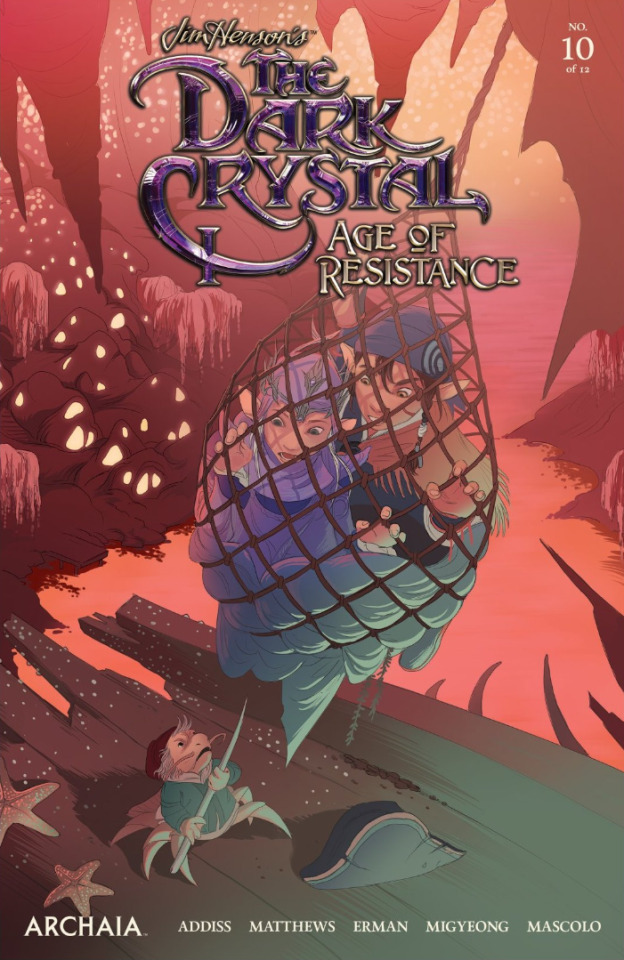
The Journey into the Mondo Levidian Part 2
The true untold tale of All-Maudra Mayrin’s inaugural adventure!
Well, untold in the show. Comic is telling plenty.
In part one, Mayrin becomes All-Maudra and has plenty of unresolved mother issues and insecurity about it. Her first crisis is the growing Sifan separatist movement which threatens to shatter Gelfling solidarity and make her more of a Most-Maudra. She charters a ride with Captain Kam’Lu to go speak to the separatist leader Fenth but the ship goes and sinks.
So far we’ve had a journey so far but not into or Mondo Levidian. We probably should get around to that soon. There’s only three issues left.
So let’s get started!
When the ship sank, Mayrin jumped overboard to save Kam’Lu. Now they’re stranded in the middle of the ocean on a raft.
Mayrin is insistent that they try to find and save the crew of the Scalene Anchor and also Dot. Kam’Lu is equally insistent that No That’s A Terrible Idea. They have no food, no water, and no hope of survival unless they’re lucky enough to find land. They’re in no position to rescue anyone else. Plus...
There are political considerations.
Kam’Lu: “If the other clans believe the Sifans killed the All-Maudra, we’ll never be trusted again.”
He also mentions that Fenth predicted that THIS EXACT SITUATION might happen if the All-Maudra intervened in the Sifan separatist movement.
Huh.
Speaking of Fenth, the plot cuts over to him for a bit.
He learns of the sinking the Scalene Anchor and the presumed death of the New-All-Maudra and thinks hey, its free real estate.
High Councilor Fenth: “That means... There’s no one in line for the All-Maudra’s throne! The seat is vacant!”
skekSa: “How... fortunate! Haha! Ha! Haha! You wanted autonomy for the Sifans! Freedom from the greedy hands of the Vapra clan, yes? That is why honored me with this grand tithing -- to enlist my immortal aid? I am the only one who is sympathetic to your cause. That is why the Skeksis are here. To help Gelfling lead...!”
Call it a shot in the dark but I feel like skekSa was involved in the suspicious sea monster sinking of the Scalene Anchor.
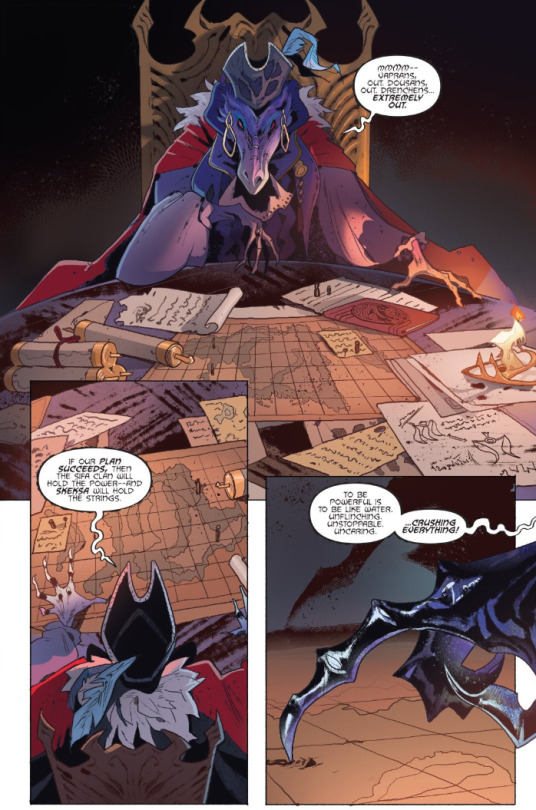
Of course, she’ll probably get away with it. It’d spoil the surprise too early if a Skeksis was caught doing an evil scheme.
Also, look at the ambition on Fenth. Grows up in a matriarchy where clan leaders are always women, where the word for clan leader means ‘clan mother’ and thinks to himself ‘psssh i can do that.’ Good on him. Dream big, guy.
Back over with our mismatched comedy duo, as all Dark Crystal stories must have, Mayrin and Kam’Lu have some mismatched comedy duo banter.
Like her criticizing him for not being able to find land despite being a captain of a ship. And then immediately spotting land while he’s indignantly defending his credentials.
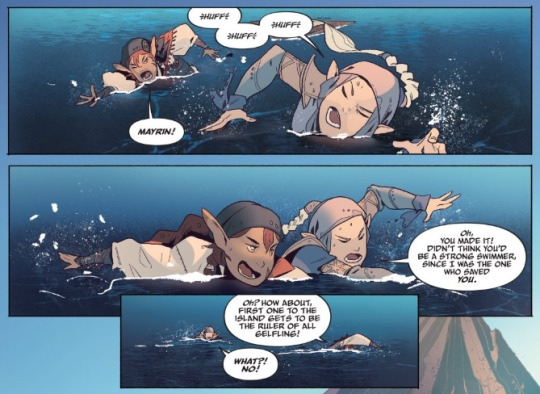
Or her maligning his swimming abilities since he fell off a boat and got knocked unconscious and had to be saved from drowning by her.
So he decides to turn this into a swimming contest, winner gets to be All-Maudra.
Good fun.
Just how I like my Gelfling buddy comedies.
Of course, its all fun and games until the island turns out to be a sea monster that eats them.
And it turns out that the island is a sea monster that eats them.
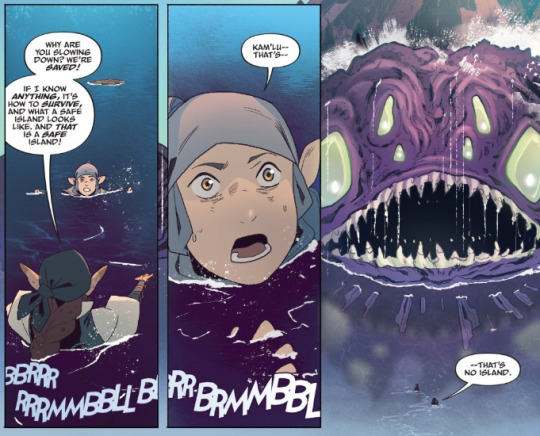
A mondo levidian, if I had to guess.
Giant turtles passing as landscape. Giant monsters being mistaken for islands. This comic series is too good to me.
So the two slide down the mondo levidian’s throat (gross) MANAGING TO BICKER ON THE WAY DOWN!
Kam’Lu: “Don’t you have wings?!”
Mayrin: “They don’t work well when they’re wet!”
Amazing.
They slide and slorp and flump all the way down to presumably the stomach.
But as they stop to rest, they realize they’re not alone.
Sulub: “Yer some kinda fishie-fish I ain’t ever seen! Betchur tasty! Anyway! No wrigglin’ while I kill ya good!”

OH MY GOD
This comic series is too good to me.
Look at this delightful podling crabtaur.
Once Kam’Lu proves immune to Sulub’s “advanced technology” (ie Sulub stabs Kam’Lu in the foot with a spear), the podcrab agrees to take the two Gelfling to see his village elder.
Sulub actually assumes that Mayrin and Kam’Lu are married and here on honeymoon at the thriving fish digestive system tourism industry I guess. Mayrin claims that Kam’Lu is just a fool and her servant (and Kam’Lu doesn’t speak Podling very well so has no idea about this) and introduces herself as the All-Maudra.
Sulub: “ALL-MAUDRA! The legendary All-Maudra! Well, why didn’t ya say so! Sulub is gilltickled and downright honored to lead ‘the all-powerful and all-knowing’ All-Maudra to our home. You’ll be enjoyin’ to know we’ve kept care of your most regal gifts! Still in pristine condition for havin’ come in a while ago!”

The gut city of Bajula has a statue of the previous All-Maudra, one apparently commissioned when Mayrin was baby.
Huh.
Well. Its helpful to Mayrin that they know about the All-Maudra and are excited to have her here. And that they’re assuming that she sent the statue ahead of herself, like luggage.
Sulub tours Mayrin and Kam’Lu around Bajula. Showing them the goo farms, the visitor center, the fermented... milk wine bar.
The king shows up and is disappointed that the Gelfling want to leave so soon into their visit and asks if Sulub even bothered to show them the goo farms!
But since Mayrin insists that they have important outside stuff to do outside, the king decides to rush through some exposition.
These podling crabs? They’re called Boblings.
Bobling King: “Thousands of trine ago, my tribe set out to explore the Silver Sea as proud, stalwart Podlings! Our regal forefathers were not known to swim, but their bravery was unmatched, and they set out to conquer everything they discovered! All those who would get in their way would be destroyed by the might of the Podlings! Yet there are creatures in this world that are mightier, and the Mondo Leviadin emerged from the Silver Sea and devoured their ships. Thousands of digestive cycles passed as we changed to better suit our new home. Our new world.”
An unstoppable army of Podlings sounds funny until you remember how awesome Hup is. The Mono Levidian may have spared the peoples of Thra a tragic fate.
Also, I’m a big impressed at the lack of linguistic drift. Thousands of trine and Bobling language is indistinguishable from Podling and Gelfling is still recognizable.
Kam’Lu gets fed up with the Bobling King and starts yelling that he’s cold, he’s hungry, he doesn’t want to be in a fish’s guts! Mayrin manages to convince the king by speaking of duty.
Bobling King: “You speak of duty. I know it well. As a leader of my kind, I would do anything for their survival. So yes, I will help you and your servant. Why you married him, I will never know.”
Kam’Lu: “Her what? We’re what?!”
Hah, that misunderstanding is paying dividends.
The king explains that the levidian only surfaces to feed once per trine and that it stays near the surface for a time after feeding.
So if Mayrin and Kam’Lu don’t get to the porticol (blowhole) within eight or so intestinal groans (.... hours??), they’ll be stuck until next trine.
WHICH IS GOING TO BE REAL BAD FOR MAYRIN’S CAREER.
Even though the Boblings are but a simple goo-farming people, the king sends his daughter Gunda, the most skilled hunter in Bajula, to escort them.
Gunda: “But father, the journey as never been done by a single Bobling. You send me into certain danger!”
King: “And do you not crave danger?! My daughter, you are the only one capable and brave enough to undertake such a quest! Please! A duty for your king!”
Gunda: “So be it. I will guide you to the porticol, but know that it is dangerous and uncharted. There are many creatures that call this place home. We must be vigilant. Stalwart. Like my podling ancestors!”
This is a fun little bit because it implies a life and experiences and that these Boblings haven’t just been sitting waiting for protagonists to show up. I mean, they also have been doing that. They have a visitor center set up. But they’ve been living their own dramas.
And off they go! Mayrin, Kam’Lu, and Gunda! On a grand journey to a giant sea monster’s blowhole!
Wait, is this thing a mammal?

So that’s issue 2.
We’re finally in the Mondo Levidian. And now all the protagonists want is to get out. So we’ve got the title, we’ve got an objective, we’ve got some fun side cast, we’ve got a ticking clock before Mayrin and Kam’Lu have to look at the sea monster gut apartment listings, and we’ve got some outside stakes!
Mayrin continues to impress. There’s even a moment right when Kam’Lu rouses after the shipwreck where he seems in awe of her confidence in a crisis.
Kam’Lu has his own personality now that’s not parroting Fenth. Its being a butt monkey, with a slight shade of being a little shit. Between Mayrin giving him shit for supposedly being bad at sailor stuff to getting stabbed in the foot by Boblings twice to being mistaken for Mayrin’s servant-husband, Kam’Lu is having a trying adventure. Plus his ship sank and all of his friends may be dead and if they fail to escape the Mondo Levidian, he’ll go down in history as the idiot that got an All-Maudra killed.
Poor guy.
Gunda has only had two pages to shine and she seems endearing! But it feels weird that Sulub isn’t coming along. He’s the introductory Bobling and all. But I guess speaking only Podling would be an impediment to interacting with Kam’Lu. Still, its weird that he just seems to fade out of the story once the king shows up.
Farewell, Sulub, you funky crab potato.
#dark crystal#the dark crystal#dark crystal age of resistance#Archaia's dark crystal#a prequel to a prequel#All Maudra Mayrin#Captain Kam'Lu#skekSa#the Mariner#Sulub the Bobling#Gunda the Bobling#Bobling King the Bobling
22 notes
·
View notes
Photo
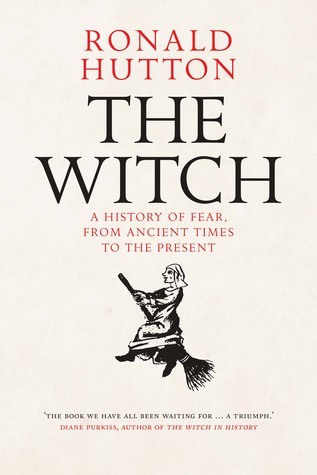
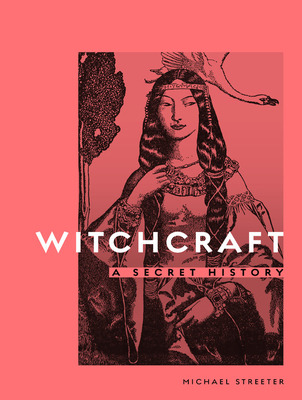
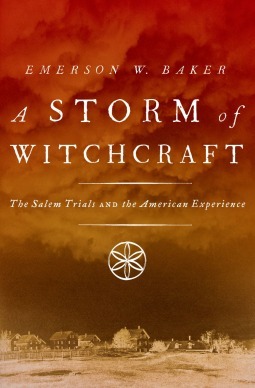
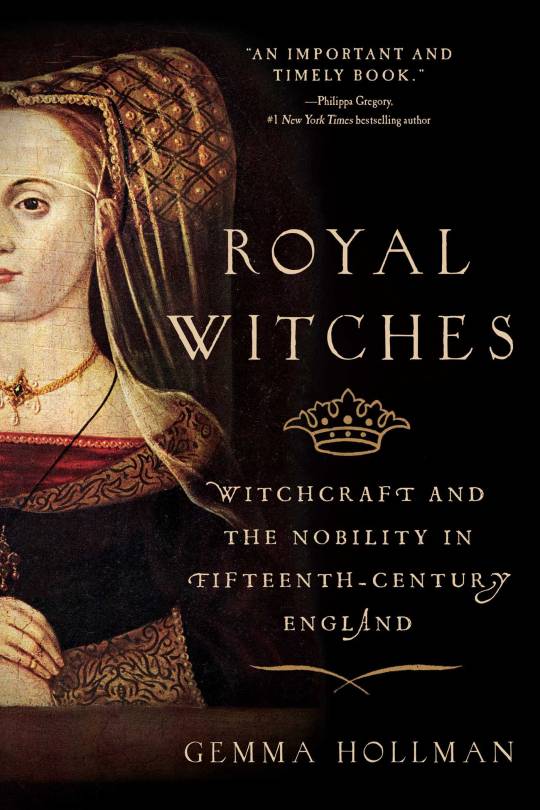

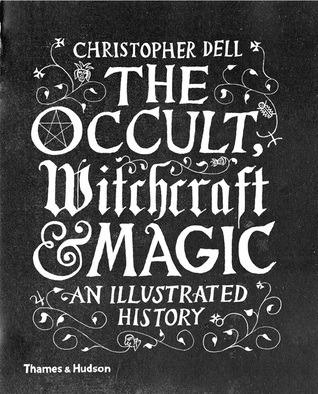
A History of Witches: a non-fiction list
The Witch: A History of Fear, from Ancient Times to the Present by Ronald Hutton
Why have societies all across the world feared witchcraft? This book delves deeply into its context, beliefs, and origins in Europe’s history.
The witch came to prominence—and often a painful death—in early modern Europe, yet her origins are much more geographically diverse and historically deep. In this landmark book, Ronald Hutton traces witchcraft from the ancient world to the early-modern stake.
This book sets the notorious European witch trials in the widest and deepest possible perspective and traces the major historiographical developments of witchcraft. Hutton, a renowned expert on ancient, medieval, and modern paganism and witchcraft beliefs, combines Anglo-American and continental scholarly approaches to examine attitudes on witchcraft and the treatment of suspected witches across the world, including in Africa, the Middle East, South Asia, Australia, and North and South America, and from ancient pagan times to current interpretations. His fresh anthropological and ethnographical approach focuses on cultural inheritance and change while considering shamanism, folk religion, the range of witch trials, and how the fear of witchcraft might be eradicated.
Witchcraft: A Secret History by Michael Streeter
Witchcraft: A Secret History unravels the myth from the mystery, the facts from the legends. Meet all the witches of your imagination and discover the meanings of their rituals and rites, their lore, and their craft. Discover the significance of their sabbats and covens, their chalices and wands, their robes and their religion. Unlock the secrets of the legendary witches of mythology and folk tales and find out how these early stories influenced the persecutions and witch-hunts of the Middle Ages. Learn about the people who inspired the pagan revival and how their work in literature and magic rekindled the fires of the sabbats across Europe and the New World today.
A Storm of Witchcraft: The Salem Trials and the American Experience by Emerson W. Baker
Beginning in January 1692, Salem Village in colonial Massachusetts witnessed the largest and most lethal outbreak of witchcraft in early America. Villagers—mainly young women—suffered from unseen torments that caused them to writhe, shriek, and contort their bodies, complaining of pins stuck into their flesh and of being haunted by specters. Believing that they suffered from assaults by an invisible spirit, the community began a hunt to track down those responsible for the demonic work. The resulting Salem Witch Trials, culminating in the execution of 19 villagers, persists as one of the most mysterious and fascinating events in American history.
Historians have speculated on a web of possible causes for the witchcraft that started in Salem and spread across the region—religious crisis, ergot poisoning, an encephalitis outbreak, frontier war hysteria—but most agree that there was no single factor. Rather, as Emerson Baker illustrates in this seminal new work, Salem was "a perfect storm": a unique convergence of conditions and events that produced something extraordinary throughout New England in 1692 and the following years, and which has haunted us ever since.
Baker shows how a range of factors in the Bay colony in the 1690s, including a new charter and government, a lethal frontier war, and religious and political conflicts, set the stage for the dramatic events in Salem. Engaging a range of perspectives, he looks at the key players in the outbreak—the accused witches and the people they allegedly bewitched, as well as the judges and government officials who prosecuted them—and wrestles with questions about why the Salem tragedy unfolded as it did, and why it has become an enduring legacy.
Royal Witches: Witchcraft and the Nobility in Fifteenth-Century England by Gemma Hollman
Until the mass hysteria of the seventeenth century, accusations of witchcraft in England were rare. However, four royal women, related in family and in court ties—Joan of Navarre, Eleanor Cobham, Jacquetta of Luxembourg and Elizabeth Woodville—were accused of practicing witchcraft in order to kill or influence the king.
Some of these women may have turned to the “dark arts” in order to divine the future or obtain healing potions, but the purpose of the accusations was purely political. Despite their status, these women were vulnerable because of their gender, as the men around them moved them like pawns for political gains.
In Royal Witches, Gemma Hollman explores the lives and the cases of these so-called witches, placing them in the historical context of fifteenth-century England, a setting rife with political upheaval and war. In a time when the line between science and magic was blurred, these trials offer a tantalizing insight into how malicious magic would be used and would later cause such mass hysteria in centuries to come.
The Witches: Salem, 1692 by Stacy Schiff
The panic began early in 1692, over an exceptionally raw Massachusetts winter, when a minister's niece began to writhe and roar. It spread quickly, confounding the most educated men and prominent politicians in the colony. Neighbors accused neighbors, husbands accused wives, parents and children one another. It ended less than a year later, but not before nineteen men and women had been hanged and an elderly man crushed to death.
Speaking loudly and emphatically, adolescent girls stood at the center of the crisis. Along with suffrage and Prohibition, the Salem witch trials represent one of the few moments when women played the central role in American history. Drawing masterfully on the archives, Stacy Schiff introduces us to the strains on a Puritan adolescent's life and to the authorities whose delicate agendas were at risk. She illuminates the demands of a rigorous faith, the vulnerability of settlements adrift from the mother country, perched--at a politically tumultuous time--on the edge of what a visitor termed a "remote, rocky, barren, bushy, wild-woody wilderness." With devastating clarity, the textures and tension of colonial life emerge; hidden patterns subtly, startlingly detach themselves from the darkness. Schiff brings early American anxieties to the fore to align them brilliantly with our own. In an era of religious provocations, crowdsourcing, and invisible enemies, this enthralling story makes more sense than ever.
The Occult, Witchcraft and Magic: An Illustrated History by Christopher Dell
From the days of the earliest Paleolithic cave rituals, magic has gripped the imagination. Magic and magicians appear in early Babylonian texts, the Bible, Judaism, and Islam. Secret words, spells, and incantations lie at the heart of nearly every mythological tradition. But for every genuine magus there is an impostor.
During the Middle Ages, religion, science, and magic were difficult to set apart. The Middle Ages also saw the pursuit of alchemy—the magical transformation of base materials—which led to a fascination with the occult, Freemasonry, and Rosicrucianism.
The turn of the twentieth century witnessed a return to earlier magical traditions, and today, magic means many things: contemporary Wicca is practiced widely as a modern pagan religion in Europe and the US; “magic” also stretches to include the nonspiritual, rapid-fire sleight of hand performed by slick stage magicians who fill vast arenas.
The Occult, Witchcraft and Magic is packed with authoritative text and a huge and inspired selection of images, some chosen from unusual sources, including some of the best-known representations of magic and the occult from around the world spanning ancient to modern times.
#nonfiction#non-fiction#witchcraft#witchcraft books#the history of witchcraft#tbr#Reading Recs#book recs#recommended reading#to read#library#public library#history books#history
132 notes
·
View notes
Link
capitalocene: the profit motive will always get in the way of our collective humanity. the oil companies that profit from the destruction of the human ecology want to sacrifice human beings for more money. this is how the capitalist system works.
(via)
Harvard researchers chart evolution from denial to misdirection as House inquiry widens
The U.S. House of Representatives’ Oversight Committee earlier this month widened its inquiry into the oil industry’s role in fostering doubt about the role of fossil fuels in causing climate change. A letter from the panel to Darren Woods, ExxonMobil chief executive, said lawmakers were “concerned that to protect … profits, the industry has reportedly led a coordinated effort to spread disinformation to mislead the public and prevent crucial action to address climate change.” The Gazette spoke with Geoffrey Supran, a research fellow in the History of Science, who, together with Naomi Oreskes, the Henry Charles Lea Professor of the History of Science, published a series of studies in recent years, the most recent one in May, on the climate communications of ExxonMobil, one of the world’s biggest oil and gas companies.
Q&A
Geoffrey Supran
GAZETTE: Tell me about your research on the oil and gas industry’s role in spreading climate disinformation.
SUPRAN: In 2017, I and Naomi Oreskes published a series of three papers focused on what you might call traditional climate-science denial by ExxonMobil. Then, in May of this year, we shifted gears slightly, releasing a new study looking at the company’s more subtle forms of climate propaganda.
GAZETTE: What kinds of issues do you suspect the House committee will find?
SUPRAN: In 2017, our research was the first peer-reviewed analysis of ExxonMobil’s 40-year history of climate-change communications. And what we discovered was that there were systematic discrepancies between, on the one hand, what Exxon and ExxonMobil scientists said about climate-science privately and in academic circles, versus what Exxon, Mobil, and ExxonMobil said to the general public in The New York Times and elsewhere. That analysis showed that ExxonMobil misled the public about basic climate science and its implications. They did so by contributing quietly to climate science, and loudly to promoting doubt about that science.
Our work and others’ in that area provides evidence for the committee, demonstrating ExxonMobil’s long history of attacking science and scientists in order to undermine and delay climate action. Our more recent work, this May, is an evolution of that study in that it focuses on how, beyond outright disinformation, ExxonMobil has used language to subtly but systematically shape the way the public thinks about climate change, often in misleading ways. That study demonstrates how the company has selectively emphasized some terms and topics in public while consistently avoiding others.
The takeaway message across all of our work is that over and over, ExxonMobil has misled the public about climate change by telling the public one thing and then saying and doing the opposite behind closed doors. Our latest work shows that while their tactics have evolved from outright, blatant climate denial to more subtle forms of lobbying and propaganda, their end goal remains the same. And that’s to stop action on climate change.
GAZETTE:So according to your findings, within the walls of ExxonMobil there was never any doubt about climate science. Is that right?
SUPRAN: Right, there was never the undue doubt that they promoted in public. In fact, behind closed doors and in academic circles, Exxon has known that its products would likely cause dangerous global warming since at least the 1970s. By way of its trade association, the American Petroleum Institute, the oil industry as a whole has been on notice even longer — since the 1950s.

Naomi Oreskes (pictured) and Geoffrey Supran’s new study looks at ExxonMobil’s subtle forms of climate propaganda.
Rose Lincoln/Harvard file photo
GAZETTE:What was the most disturbing finding from this hard look at ExxonMobil’s communications?
SUPRAN: A key contribution of our work has been demonstrating the systematic and statistically significant bias of ExxonMobil’s public communications toward denial and delay. But the most uncomfortable realization is how subtle and systematic and increasingly sophisticated their propaganda has become.
In our most recent work, we’ve had to rely on statistical techniques from computational linguistics to uncover patterns of speech hiding in plain sight. These include a systematic fixation on consumer energy demand rather than on the fossil fuels that the company supplies and the systematic representation of climate change as a “risk” rather than a reality. These are subtle patterns that, we’ve now realized, have been systematically embedded into climate discourse by ExxonMobil and other fossil fuel interests.
That’s particularly discomforting, because when you start to pull back the curtain you see just how sophisticated the oil industry’s propaganda machine has been, how easily their rhetoric has snuck into people’s consciousness and biased the way the public thinks about this. Mobil’s vice president and pioneer of PR in the ’70s and ’80s literally talked about what he called “semantic infiltration.” He called it “the process whereby language does the dirty work of politics.” And he said that the first “general principle” of PR was to, quote, “grab the good words … while sticking your opponents with the bad ones.” Our research now shows that’s exactly what they’ve been up to for decades.
GAZETTE: Have the oil companies stopped outright denying climate change? The subtle approach you talk about, is that all they’re doing now?
SUPRAN: From the mid-2000s through to the 2010s, ExxonMobil and other fossil-fuel companies gradually “evolved” their language, in the words of one ExxonMobil manager, from blatant climate denial to these more subtle and insidious forms of delayism. Another ExxonMobil manager described the effort by former company chairman and chief executiveRex Tillerson in the mid-2000s as an effort to “carefully reset” the company’s profile on climate change so that it would be “more sustainable and less exposed.” They did so by drawing straight from the tobacco industry’s playbook of threading a very fine rhetorical needle, using language about climate change just strong enough to be able to deny that they haven’t warned the public, but weak enough to exculpate them from charges of having marketed a deadly product.
So while their outright denial has tapered off, their propaganda hasn’t stopped. It’s in fact shifted into high gear and is now operating with a sophistication that we’ve never seen before. In our recent study, I mentioned the rhetoric of risk and individualized responsibility, but we also identified systematic use of language indicative of other what we call “discourses of delay,” such as greenwashing, fossil-fuel solutionism, technological optimism, and so on. These are now pervasive in industry marketing and, in turn, in the ways that the public and policymakers think and talk about the climate crisis.
To give just one example, did you know that the very notion of a personal carbon footprint — a concept that’s completely ubiquitous in discussions about personal responsibility — was first popularized by BP as part of a £74 million per year marketing campaign between 2004 and 2006?
They’ve also upgraded their tactics, moving from print advertorials to digital advertorials and microtargeted social media. Digital advertorials are ads presented to appear in the style of newspapers online and made for the oil companies by the newspapers themselves. They are the direct digital descendant of the print advertorials that Mobil pioneered in the ’70s through the 2000s, in part with their climate messaging.
“The takeaway message across all of our work is that over and over, ExxonMobil has misled the public about climate change by telling the public one thing and then saying and doing the opposite behind closed doors.”
GAZETTE:Did we get a sense as to how this happens? Are there company memos about phrasing and language, that kind of thing? Or is it still opaque?
SUPRAN: Proving intent is generally nontrivial, but all signs point to “Yes.” In terms of outright climate denial, we have smoking-gun documents that lay out in black and white Exxon’s intentions from the ’80s and ’90s to, in their words, “emphasize the uncertainty,” “extend the science,” and so on. In terms of delayism, we know, for example, that in 1981, Mobil internally reviewed its PR campaigns from the previous decade and celebrated how their advertorials in The New York Times had allowed them to become part of what they called “the collective unconscious” of the nation, as not only the general population but the Times editorial board had begun to shift their opinions in line with the company’s views. As I mentioned, the pioneer of Mobil’s advertorials, Herb Schmertz, also talked a lot about their public-affairs principles.
Beyond that, we don’t yet have the smoking-gun strategy documents for delay equivalent to the ones for denial. This is speculation, but part of the reason that we see propaganda mirrored so closely between different companies and different industries is because much of the time they work with the same PR firms and ad agencies. And so it could be that those memos lie in the file cabinets of PR firms rather than the oil companies themselves. That’s why there are now campaigns to hold those PR agents to account as well.
GAZETTE:This is kind of a horrible question to ask, but were you ever, despite yourself, impressed with the strategy and its effectiveness?
SUPRAN: Through our research, it has gradually dawned on me and my colleagues how central to the invention and advancement of modern propaganda the oil and gas industry has been over the last century. For me, coming from a physics and engineering background and retraining to work in this discipline, it’s been eye-opening and humbling to realize how much of the way we think and talk about this crisis has been encouraged and embodied by fossil-fuel-industry propaganda.
So I do recognize just how effective this industry’s public-affairs tactics have been. They’ve certainly undermined public concern and action on this crisis for decades. For my entire lifetime, in fact, the climate denial and delay machine has been in full swing. I’m not sure if “marvel” is the right word, but I’m very cognizant of the fact that I am part of the climate-change generation, born into a society locked into fossil fuels not for want of scientific understanding or technology or policy know-how, but because of the greed and disinformation and lobbying of a small group of fossil-fuel interests and conservative billionaires.
5 notes
·
View notes
Photo

The history of the human race is a continual struggle from darkness into light. It is, therefore, to no purpose to discuss the use of knowledge; man wants to know, and when he ceases to do so, is no longer a man.
- - Fridtjof Nansen, Norwegian pioneer Polar explorer, champion skier, scientist, diplomat, humanitarian, and Nobel Peace Prize laureate.
Born in Christiania, one time name of the present day Oslo, into a family of jurists, Fridtjof Nansen (1861-1930) was a passionate nature lover from a young age. He studied zoology at University and began working at the Museum of Natural History in Bergen, where he started out with research on the nervous system of marine animals, following the teaching of Golgi despite his early inclination and support for Cajal’s neuron theory. Despite his interest in and focus towards laboratory research, it was nature that attracted him most, and between August and October 1888 he embarked upon the adventure of being the first to cross Greenland from East to West, a distance of 500 km, marching on skis; this at a temperature of minus 45 °C. And he remained there throughout the winter to study the life of the Eskimos or the Inuit, the name preferred by them.
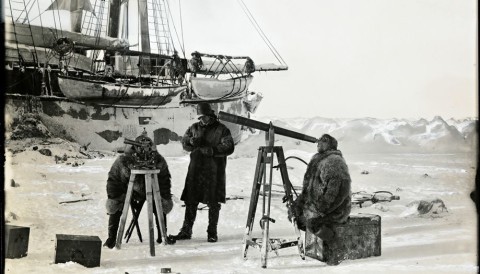
Back in Norway, Nansen taught at the Zoological Institute of Oslo and published two books: The First Crossing of Greenland (1890) and Eskimo Life (1891). Shortly after his return, he presented, before the Norwegian geographical society, a project for a maritime expedition towards the North Pole. He conceived it with the purpose of redressing and compensating for the previous failure: that which the ship The Jeanette suffered in an earlier attempt, caused by the force of the ice, crushing the ship. With the funds he succeeded in raising, he ordered the Fram (“Forward”) to be built, a ship designed to withstand the pressure of the ice by rising over it. Preparing for an expedition of two or three years, he ordered fuel, food, scientific documents and instruments to be shipped on board.

In 1893, the Fram set sail and was left to drift between the ice flows towards the Arctic on a trip that was to last more than three years. Nansen’s expedition crossed the Arctic Ocean for the first time, discovering the existence of a deep polar basin. After more than a year allowing themselves to drift through the ice, Nansen and his companion Hjalmar Johansen, came to the conclusion that the current would never carry them up to the North Pole and on March 14, 1895 they decided to abandon ship and set out for the North Pole on foot. They had to give up their goal and finally returned to find the Fram in the port of Tromsoe. On September 9th they landed at the port of Oslo, acclaimed by the citizens. Despite not having achieved its goal, the expedition claimed the most northern position man was ever known to have reached and made outstanding scientific contributions on oceanography, climate, hydrography, ice formation and the study of its fauna. Appointed Professor of Zoology and Oceanography at the Royal Frederick University in Oslo, Nansen published six volumes on the expedition and its scientific observations.

In addition to a remarkable scientific career and as explorer of nature in extreme conditions, Nansen was a fighter for the independence of Norway and, despite his Republican ideology, finally defended the monarchist option for pragmatic reasons. After independence was declared, Nansen was appointed as the first Ambassador of Norway to London (1906-1908), while continuing to participate in oceanic expeditions.
During the First World War he was head of the delegation that negotiated an agreement in Washington for the supply of food to areas blockaded by the war and at the end of the conflict he was appointed High Commissioner of the League of Nations arranging the exchange of prisoners and aid to the Russian refugees. He created the Nansen Passport, an international identity document that made possible the release and repatriation of more than 450,000 prisoners.
In 1921 he led a campaign of the Red Cross against the hunger crisis that was devastating rural areas of Russia. He also held the post of international mediator in the conflicts between Greece and Turkey and in the war between Armenia and Turkey. On December 10th 1922 he was awarded the Nobel Peace Prize.

An emblematic figure in his country, he had all manner of honours and awards bestowed upon him both before and after his death. The Fram can still be seen in the Museum of the island of Bygdøy near Oslo. The many scientific and personal biographies of Nansen reflect the importance of the scientific spirit he represented and the political and human commitment of science during the critical period of the early decades of the twentieth century.
#fridtjof nansen#nansen#quote#norsk#norwegian#travel#explorer#hero#icon#pioneer#polar#science#expedition#norway#journey#exploration#snow
56 notes
·
View notes